Welcome
Welcome to the Polymathic Scholars program! This handbook has been prepared as an introduction to the program. You will learn about important people, activities, policies, dates… in fact, much more than you can remember, so keep it handy and feel free to ask questions. You can also find much more information throughout the Polymathic Scholars website.
Please take a little time to learn about the program. You may find that this program is the most important facet of your university experience. The other honors students you meet may very likely be your friends for life. Through our network of contacts, you will also meet faculty, research supervisors, and health professionals who will be important mentors for your intellectual development and academic progress here at this university and beyond.
Lastly, please notice the wide range of activities the program offers: mentoring, sports, social events, lectures, and much more. Given the strong role of the Student Leadership Panel and generally small size of the program, you have a unique opportunity to have a hand in making Polymathic Scholars all that you want it to be. Without question, performing well in your classes is important. But there is so much more to a university education than what happens within classes. We hope you look back later and say this was the most enriching period of your life – and that the Polymathic Scholars program played a part in that. Make up your mind now to get as much as you can from it!
Warmly,
Dr. Michael Mauk
Polymathic Scholars
Faculty Director
PS Faculty Steering Committee
Under the leadership of Dr. Michael Mauk, members of the faculty steering committee serve as mentors to Polymaths, review applications, and determine program policy.
michael mauk, FACULTY DIRECTOR
 Mike Mauk is a Professor of Neurobiology and the Karl Folkers Chair in Interdisciplinary Biomedical Research. He received his Ph.D. from Stanford University and did postdoctoral work in the Neurology Department at Stanford Medical School. Dr. Mauk’s research focuses on computation and mechanisms of learning in brain systems, particularly in the cerebellum and prefrontal cortex. The hallmark feature of his research is the combined use of experiment and computer simulation to address what brain systems compute and how their neurons and synapses accomplish this computation. Dr. Mauk’s ultimate goal for his research is to understand brain systems well enough to build fully functional replicas.
Mike Mauk is a Professor of Neurobiology and the Karl Folkers Chair in Interdisciplinary Biomedical Research. He received his Ph.D. from Stanford University and did postdoctoral work in the Neurology Department at Stanford Medical School. Dr. Mauk’s research focuses on computation and mechanisms of learning in brain systems, particularly in the cerebellum and prefrontal cortex. The hallmark feature of his research is the combined use of experiment and computer simulation to address what brain systems compute and how their neurons and synapses accomplish this computation. Dr. Mauk’s ultimate goal for his research is to understand brain systems well enough to build fully functional replicas.
RICHARD ALDRICH
 Richard Aldrich is a Professor in the Department of Neuroscience and the Karl Folkers Chair II in Interdisciplinary Biomedical Research. He received his Ph.D. in Neuroscience from Stanford University and did his postdoctoral work at Yale University in Physiology. His research is directed towards understanding the mechanisms of ion channel function and the role of ion channels in electrical signaling and physiology by using a combination of molecular biology, electrophysiology, biophysics, cellular and systems physiology, and computational biology. Dr. Aldrich is a member of the National Academy of Sciences.
Richard Aldrich is a Professor in the Department of Neuroscience and the Karl Folkers Chair II in Interdisciplinary Biomedical Research. He received his Ph.D. in Neuroscience from Stanford University and did his postdoctoral work at Yale University in Physiology. His research is directed towards understanding the mechanisms of ion channel function and the role of ion channels in electrical signaling and physiology by using a combination of molecular biology, electrophysiology, biophysics, cellular and systems physiology, and computational biology. Dr. Aldrich is a member of the National Academy of Sciences.
RUTH BUSKIRK
 Ruth Buskirk is a Distinguished Senior Lecturer in the Section of Molecular Genetics & Microbiology and Fellow of Worthington Endowed Distinguished Senior Lecturership for Ecology and Evolutionary Biology in Plan II. Her research on behavior and physiology includes work of spiders, dragonflies, baboons, and unusual animal behavior before earthquakes. She has taught introductory biology, honors biology, and honors genetics at the University of Texas at Austin for over 20 years. Dr. Buskirk received the UT System Regents’ Outstanding Teaching Award in 2009 and is a three-time recipient of the Texas Exes Teaching Award.
Ruth Buskirk is a Distinguished Senior Lecturer in the Section of Molecular Genetics & Microbiology and Fellow of Worthington Endowed Distinguished Senior Lecturership for Ecology and Evolutionary Biology in Plan II. Her research on behavior and physiology includes work of spiders, dragonflies, baboons, and unusual animal behavior before earthquakes. She has taught introductory biology, honors biology, and honors genetics at the University of Texas at Austin for over 20 years. Dr. Buskirk received the UT System Regents’ Outstanding Teaching Award in 2009 and is a three-time recipient of the Texas Exes Teaching Award.
RENÉ DAILEY
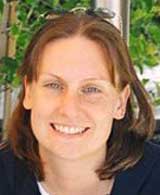 René Dailey is an Associate Professor in the Department of Communication Studies. She received her Ph.D from the University of California - Santa Barbara. Dr. Dailey is interested in communication in families and dating relationships. In her research on families, she focuses on how acceptance and challenge from parents and siblings are related to children’s psychosocial adjustment (e.g., self-esteem, identity), communication patterns (e.g., openness), and more recently, weight management. In her work on dating couples, she is investigating communication in “on-again/off-again” relationships and how communication in these relationships differs from other dating relationships. Her work has appeared in Communication Monographs, Human Communication Research, and Journal of Social and Personal Relationships. She teaches courses on personal relationships and nonverbal communication.
René Dailey is an Associate Professor in the Department of Communication Studies. She received her Ph.D from the University of California - Santa Barbara. Dr. Dailey is interested in communication in families and dating relationships. In her research on families, she focuses on how acceptance and challenge from parents and siblings are related to children’s psychosocial adjustment (e.g., self-esteem, identity), communication patterns (e.g., openness), and more recently, weight management. In her work on dating couples, she is investigating communication in “on-again/off-again” relationships and how communication in these relationships differs from other dating relationships. Her work has appeared in Communication Monographs, Human Communication Research, and Journal of Social and Personal Relationships. She teaches courses on personal relationships and nonverbal communication.
ARTURO DE LOZANNE
 Arturo De Lozanne is an Associate Professor of Molecular Biosciences. He is interested in the study of cell motility and its role in different aspects of cell biology. His current research is focused on the understanding of the molecular basis of cytokinesis. He received his Ph.D. in cell biology from Stanford University and received the President’s Associates Teaching Award for outstanding achievement in the classroom in 2004 and the Holloway Award for Teaching Excellence in 2006. Dr. De Lozanne participated in the UF Evolution Debate in 2009.
Arturo De Lozanne is an Associate Professor of Molecular Biosciences. He is interested in the study of cell motility and its role in different aspects of cell biology. His current research is focused on the understanding of the molecular basis of cytokinesis. He received his Ph.D. in cell biology from Stanford University and received the President’s Associates Teaching Award for outstanding achievement in the classroom in 2004 and the Holloway Award for Teaching Excellence in 2006. Dr. De Lozanne participated in the UF Evolution Debate in 2009.
gray garmon

Gray Garmon is an Assistant Professor and Director of the Center for Integrated Design in the School of Design and Creative Technologies. Garmon holds a Master of Architecture from the University of Pennsylvania. He practices human-centered design (HCD): a problem-solving approach widely used in industry, governments, schools, and NGOs. HCD focuses on people first, using specific qualitative research methods to understand the context in which people are functioning and how understanding behaviors, emotions, and motivations can lead to better design solutions.
THOMAS GARZA
 Thomas Garza is Distinguished Teaching Associate Professor in the Department of Slavic and Eurasian Studies and Director of the Texas Language Center. His research interests include contemporary Russian youth and popular culture, teaching the cultural component in foreign languages, applications of authentic media—especially film—in language teaching, and vampires in Slavic cultures. Garza’s research on vampires was featured in the History Channel’s docudrama, “Vampire Secrets,” and in HBO’s vampire documentary to launch the “True Blood” television series. Garza has been recognized with numerous awards, including the Regents’ Outstanding Teaching Award and National Award for Post Secondary Teaching. In 2018, he was named to the Texas Ten by the Texas Exes Alumni Association.
Thomas Garza is Distinguished Teaching Associate Professor in the Department of Slavic and Eurasian Studies and Director of the Texas Language Center. His research interests include contemporary Russian youth and popular culture, teaching the cultural component in foreign languages, applications of authentic media—especially film—in language teaching, and vampires in Slavic cultures. Garza’s research on vampires was featured in the History Channel’s docudrama, “Vampire Secrets,” and in HBO’s vampire documentary to launch the “True Blood” television series. Garza has been recognized with numerous awards, including the Regents’ Outstanding Teaching Award and National Award for Post Secondary Teaching. In 2018, he was named to the Texas Ten by the Texas Exes Alumni Association.
RACHEL GONZÁLEZ-MARTIN
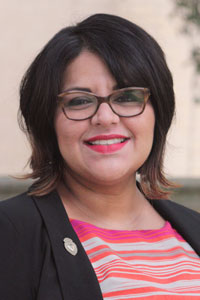 Rachel González-Martin holds a Ph.D. in Folklore & Ethnomusicology from Indiana University. Dr. González-Martin is Assistant Professor in the Department of Mexican & Latina/o Studies. Her research focuses on the verbal and material traditions of communities coming-of-age in the American Latino Diaspora. Her work looks at personal-experience-narratives, body art, materiality and self-portraiture with regard to gender, sexual identities, race, and socioeconomic status. She is currently working on a book manuscript that explores the intersection of consumer citizenship and Latino identity in the 21st century titled, Coming Out Latina: Quinceañera Style and Latina/o Consumer Identities.
Rachel González-Martin holds a Ph.D. in Folklore & Ethnomusicology from Indiana University. Dr. González-Martin is Assistant Professor in the Department of Mexican & Latina/o Studies. Her research focuses on the verbal and material traditions of communities coming-of-age in the American Latino Diaspora. Her work looks at personal-experience-narratives, body art, materiality and self-portraiture with regard to gender, sexual identities, race, and socioeconomic status. She is currently working on a book manuscript that explores the intersection of consumer citizenship and Latino identity in the 21st century titled, Coming Out Latina: Quinceañera Style and Latina/o Consumer Identities.
Alex Huth
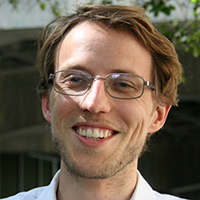
Alex Huth earned his Ph.D. through the Helen Wills Neuroscience Institute at UC Berkeley. He is Assistant Professor in the Departments of Computer Science and Neuroscience. His research is focused on how the many different areas in the human brain work together to perform complex tasks such as understanding natural language. He uses fMRI to measure brain responses while subjects do real-life tasks, such as listening to a story, and then uses those data to build computational models of how the brain functions. Dr. Huth received the Burroughs Wellcome Career Award in 2016.
Gerald Oettinger
 Gerald Oettinger is Associate Professor of Economics. He teaches courses in labor economics, microeconomic theory, and personnel economics. He received his Ph.D. in economics from Massachusetts Institute of Technology. Dr. Oettinger has published articles in the "Journal of Human Resources" and the "Review of Labor Economics and Statistics." He received both the Killam Award and Rapoport-King Award for supervising outstanding honors students.
Gerald Oettinger is Associate Professor of Economics. He teaches courses in labor economics, microeconomic theory, and personnel economics. He received his Ph.D. in economics from Massachusetts Institute of Technology. Dr. Oettinger has published articles in the "Journal of Human Resources" and the "Review of Labor Economics and Statistics." He received both the Killam Award and Rapoport-King Award for supervising outstanding honors students.
BRIAN ROBERTS
 Brian Roberts is a Professor in the Department of Government and Director of the Texas Archeological Research Laboratory. His research interests include American political institutions, interest groups, and positive political economy, with a focus on the intersection of politics and financial markets, corporate political participation, and distributive politics. He has published papers in the fields of political science, economics and finance and holds an appointment in the new Department of Business, Government and Society in the McCombs School of Business.
Brian Roberts is a Professor in the Department of Government and Director of the Texas Archeological Research Laboratory. His research interests include American political institutions, interest groups, and positive political economy, with a focus on the intersection of politics and financial markets, corporate political participation, and distributive politics. He has published papers in the fields of political science, economics and finance and holds an appointment in the new Department of Business, Government and Society in the McCombs School of Business.
Donnie Sackey
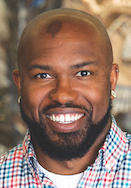
Donnie Sackey is an Assistant Professor in the Department of Rhetoric and Writing. Dr. Sackey does community-engaged scholarship and research in environmental rhetoric. He was previously a faculty member at Wayne State University and a senior researcher for Detroit Integrated Vision for Environmental Research through Science and Engagement (D*VERSE), which he co-founded. D*VERSE is a transdisciplinary research team that works at the intersection of health, environmental, and communication sciences, and it aims to develop a new approach for evaluating the impact of certain environmental stressors on health in urban settings. His current book project is about the water crisis in Flint, Michigan.
LORENZO SADUN
 Lorenzo Sadun is Professor of Mathematics with research interests in mathematical physics and differential geometry. He received his B.S. from Massachusetts Institute of Technology and his Ph.D. from the University of California in Berkeley. In 2001 he was awared the College of Natural Sciences Distinguished Teaching Award. He has written several op-ed columns for the Austin American Statesman. Lorenzo Sadun has been teaching at the University of Texas in Austin since 1991. He ran for the Place 10 seat against Cynthia Dunbar at the Texas State Board of Education election in 2009 and for congressional candidate in 2004. He has published over 60 peer-reviewed articles in academic journals.
Lorenzo Sadun is Professor of Mathematics with research interests in mathematical physics and differential geometry. He received his B.S. from Massachusetts Institute of Technology and his Ph.D. from the University of California in Berkeley. In 2001 he was awared the College of Natural Sciences Distinguished Teaching Award. He has written several op-ed columns for the Austin American Statesman. Lorenzo Sadun has been teaching at the University of Texas in Austin since 1991. He ran for the Place 10 seat against Cynthia Dunbar at the Texas State Board of Education election in 2009 and for congressional candidate in 2004. He has published over 60 peer-reviewed articles in academic journals.
ROSA SCHNYER
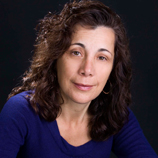
Rosa Schnyer is a Clinical Assistant Professor of Health Outcomes and Pharmacy Practice in the School of Nursing. Dr. Schnyer's research focuses on the use of complementary therapies, especially acupuncture and Chinese herbal medicine in the management of stress, depression and anxiety disorders, present alone or as part of complex, chronic conditions. Specifically, Dr. Schnyer is interested in evaluating the effect of acupuncture and Chinese herbs on sympathetic and parasympathetic function, inflammatory markers, stress hormones and clinical symptoms in patients with depression and anxiety. Dr. Schnyer is interested in developing novel treatments that can be delivered to large populations at low cost and that encourage and support patients to participate in their own care.
Amy L. Simmons
Amy L. Simmons is Senior Lecturer of Music and Human Learning at the Sarah and Ernest Butler School of Music. Dr. Simmons’ ongoing research in music teaching and learning and in music psychology has generated many publications in academic journals. She serves on the editorial board of the "Journal of Research in Music Education" and is co-chair of the College Division Research Committee for the Texas Music Educators Association. Dr. Simmons received her Ph.D. in Music and Human Learning from UT-Austin and continues to play oboe professionally in the Austin and San Antonio areas.
Simmons is Senior Lecturer of Music and Human Learning at the Sarah and Ernest Butler School of Music. Dr. Simmons’ ongoing research in music teaching and learning and in music psychology has generated many publications in academic journals. She serves on the editorial board of the "Journal of Research in Music Education" and is co-chair of the College Division Research Committee for the Texas Music Educators Association. Dr. Simmons received her Ph.D. in Music and Human Learning from UT-Austin and continues to play oboe professionally in the Austin and San Antonio areas.
juliet e. k. walker
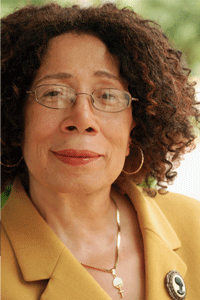 Juliet E. K. Walker is a Professor in the Department of History and the found and Director of the Center for Black Business History. She holds a Ph.D. in American History from the University of Chicago. Her teaching fields include African American History, Antebellum Slavery, Black Business History and Political Economy, Black Intellectural History, and African American Women's History. She is the recipient of numerous fellowships and publication awards for her books and articles.
Juliet E. K. Walker is a Professor in the Department of History and the found and Director of the Center for Black Business History. She holds a Ph.D. in American History from the University of Chicago. Her teaching fields include African American History, Antebellum Slavery, Black Business History and Political Economy, Black Intellectural History, and African American Women's History. She is the recipient of numerous fellowships and publication awards for her books and articles.
2022-2023 PS Student Leadership Panel
The Polymathic Scholars Student Leadership Panel hosts a variety of social, academic, and service events on and off campus. Among its signature achievements is the Texas Chautauqua Series, an annual campus-wide forum on issues of particular importance to Texans. Recent forums have concerned the controversy over how evolution should be taught in the state’s public schools, concealed carry legislation, the influence of major college football in higher education, and the pros and cons of taxing carbon emissions. Sophomores, juniors and seniors apply to join the coming year’s panel in April; freshmen may apply after their first semester. The 2022-2023 Chair is Simran Shah.
THE PS STUDENT LEADERSHIP PANEL HOSTS ITS OWN WEBSITE AND FACEBOOK PAGE.

laasya achanta
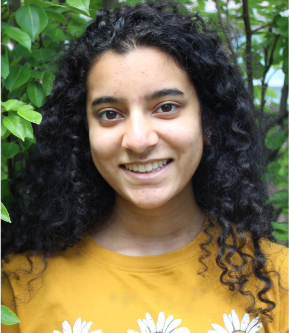
Laasya is a third-year Biochemistry major from Coppell, Texas. Her interests include infectious disease, nutrition, and urban development. Laasya is currently involved in Dollar For and Ladies Let's Talk, a non-profit working to reduce social isolation faced by immigrant women. In her free time, she enjoys walking on trails, cooking, and painting. After she graduates, Laasya is planning on attending medical school. Laasya is a member of the special events committee.
vibha annaswamy
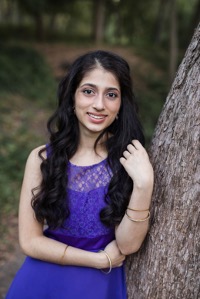 Vibha is a second year neuroscience major from Dallas, Texas. In her spare time, she enjoys hanging out with friends or curling up with a good book and a cup of tea (or fuels her coffee addiction). She likes writing and working with kids, and has self-published children's picture books in the past. Outside of the Polymathic Scholars, she is part of the marketing team for SEAL and a designer for the Texas Triple Helix Journal. Although she isn't sure what her field will be yet, she is currently interested in the topic of identity and how having ethnic names can shape experiences in the US. She plans to go to either graduate school or medical school after graduation. Vibha is a member of the Public Relations committee.
Vibha is a second year neuroscience major from Dallas, Texas. In her spare time, she enjoys hanging out with friends or curling up with a good book and a cup of tea (or fuels her coffee addiction). She likes writing and working with kids, and has self-published children's picture books in the past. Outside of the Polymathic Scholars, she is part of the marketing team for SEAL and a designer for the Texas Triple Helix Journal. Although she isn't sure what her field will be yet, she is currently interested in the topic of identity and how having ethnic names can shape experiences in the US. She plans to go to either graduate school or medical school after graduation. Vibha is a member of the Public Relations committee.surendra anne
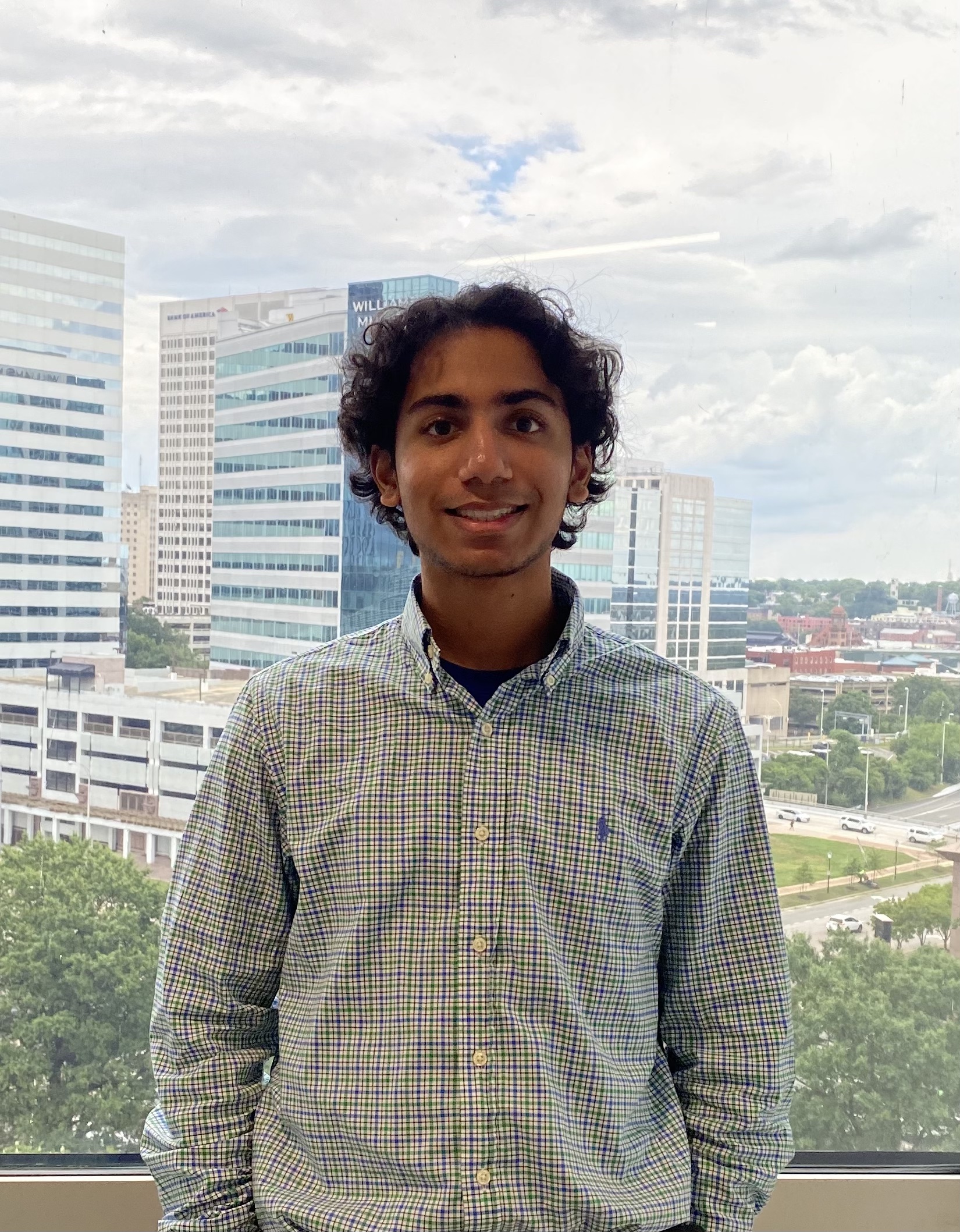 Surendra is a second year Physics major pursuing the Elements of Computing and Entrepreneurship Minor from Hockessin, Delaware. Though he has not proposed his field yet, he is interested in designing his field around the science behind cultivating critical thinking. In addition to the Panel, he is involved in Longhorn Racing Solar and the Student Cluster Competition. In his spare time, he enjoys following sports, biking on trails, and watching movies.
Surendra is a second year Physics major pursuing the Elements of Computing and Entrepreneurship Minor from Hockessin, Delaware. Though he has not proposed his field yet, he is interested in designing his field around the science behind cultivating critical thinking. In addition to the Panel, he is involved in Longhorn Racing Solar and the Student Cluster Competition. In his spare time, he enjoys following sports, biking on trails, and watching movies.
Surendra is a member of the special programs committee.
eriane austria
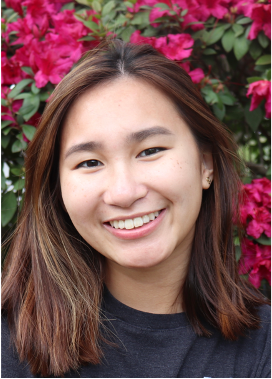 Eriane is a fourth-year Neuroscience and Arts & Entertainment Technologies double-major from League City, Texas. She plans to design her field around digital privacy, the globalization of media, and their impact on culture. She is currently involved in several creative technology organizations and projects in and outside of UT. In her free time, Eriane enjoys making art, watching movies, and learning fun ways to exercise such as skating and riding a pogo stick. Eriane is a member of the small events committee.
Eriane is a fourth-year Neuroscience and Arts & Entertainment Technologies double-major from League City, Texas. She plans to design her field around digital privacy, the globalization of media, and their impact on culture. She is currently involved in several creative technology organizations and projects in and outside of UT. In her free time, Eriane enjoys making art, watching movies, and learning fun ways to exercise such as skating and riding a pogo stick. Eriane is a member of the small events committee.
Katherine cowser
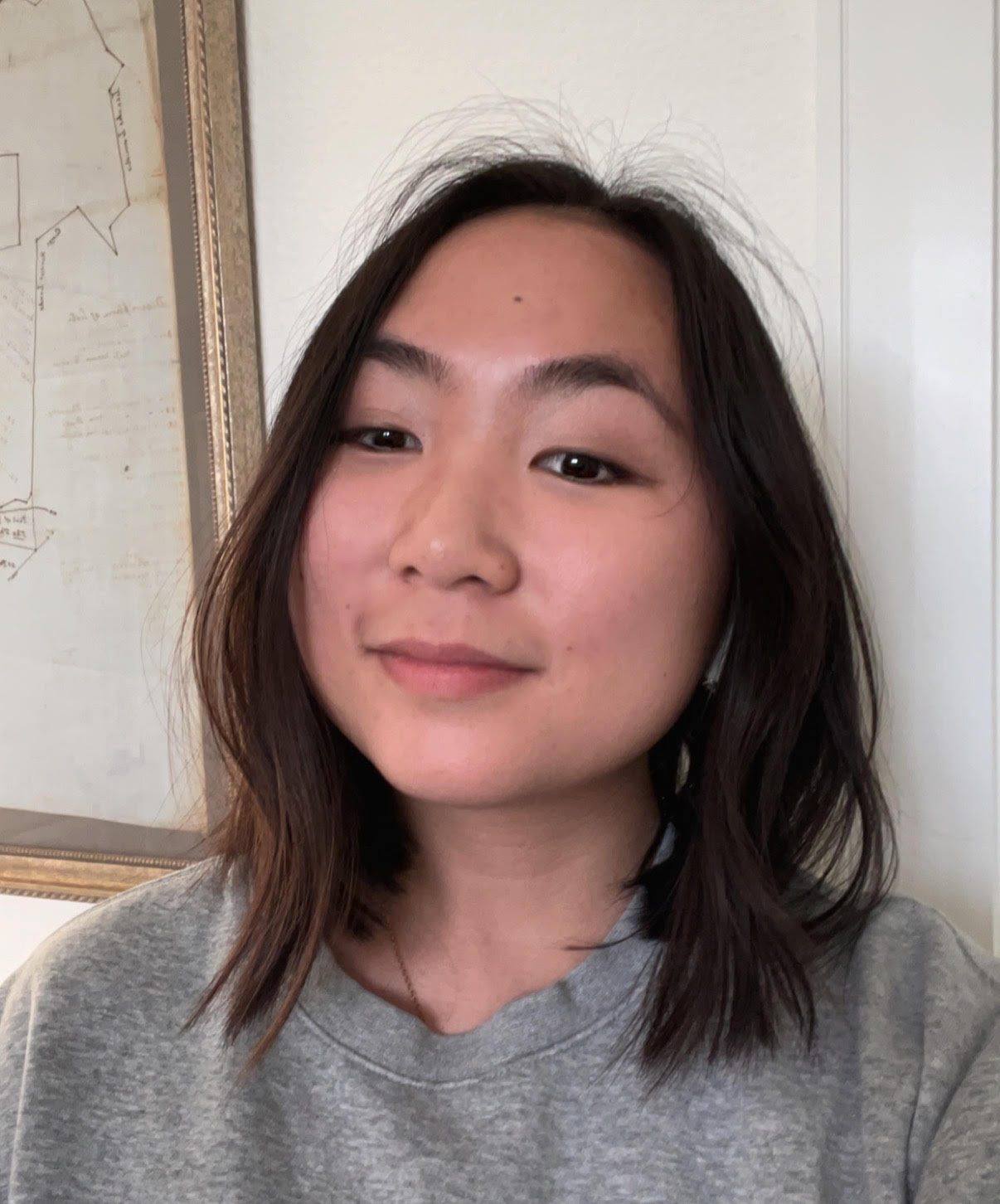 Katherine is a second year Biochemistry major from Dallas, TX. She hasn't determined her field yet, but she is particularly interested in topics surrounding gender and the Asian-American experience. She is currently working as a Women in Stem mentor and involved in a biochemistry lab with the Freshman Research Initiative. After she graduates, Katherine plans to attend medical school. Outside of school, she enjoys drinking coffee, reading, playing the piano, and dancing to her favorite kpop songs. Katherine is a member of the Small Events committee.
Katherine is a second year Biochemistry major from Dallas, TX. She hasn't determined her field yet, but she is particularly interested in topics surrounding gender and the Asian-American experience. She is currently working as a Women in Stem mentor and involved in a biochemistry lab with the Freshman Research Initiative. After she graduates, Katherine plans to attend medical school. Outside of school, she enjoys drinking coffee, reading, playing the piano, and dancing to her favorite kpop songs. Katherine is a member of the Small Events committee.david doan
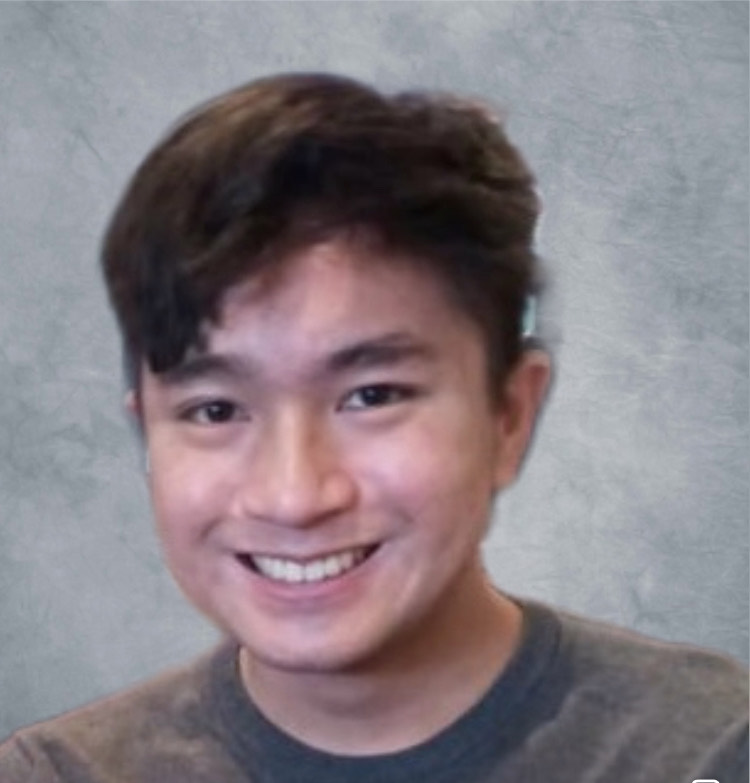 David is a second year neuroscience and biochemistry double major from Garland, Texas. He is exploring his interests around the nervous system and its relation to personhood. On campus, he works in the Aptamer Stream Lab and as a First-Gen Equity Transition and Success Coach. In his free time, he likes to paint, play tennis, eat ice cream, read, and make song parodies. David is a member of the Outreach and Inclusion committee.
David is a second year neuroscience and biochemistry double major from Garland, Texas. He is exploring his interests around the nervous system and its relation to personhood. On campus, he works in the Aptamer Stream Lab and as a First-Gen Equity Transition and Success Coach. In his free time, he likes to paint, play tennis, eat ice cream, read, and make song parodies. David is a member of the Outreach and Inclusion committee.colin johnson
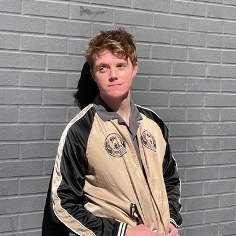 Colin Johnson is a second-year Polymath from Driftwood, Texas pursuing a degree in Physics. Although he has yet to create his field, Colin takes a particular interest in the intersection of astronomy and human development in the ancient world. He currently plans on attending graduate school after graduation. Outside of the Polymathic Scholars, Colin is a member of the White Dwarves FRI Stream. In his free time, Colin enjoys cooking, exercising, boxing, and playing Dungeons & Dragons with his friends. Colin is a member of the Small Events committee.
Colin Johnson is a second-year Polymath from Driftwood, Texas pursuing a degree in Physics. Although he has yet to create his field, Colin takes a particular interest in the intersection of astronomy and human development in the ancient world. He currently plans on attending graduate school after graduation. Outside of the Polymathic Scholars, Colin is a member of the White Dwarves FRI Stream. In his free time, Colin enjoys cooking, exercising, boxing, and playing Dungeons & Dragons with his friends. Colin is a member of the Small Events committee.
rinka ko
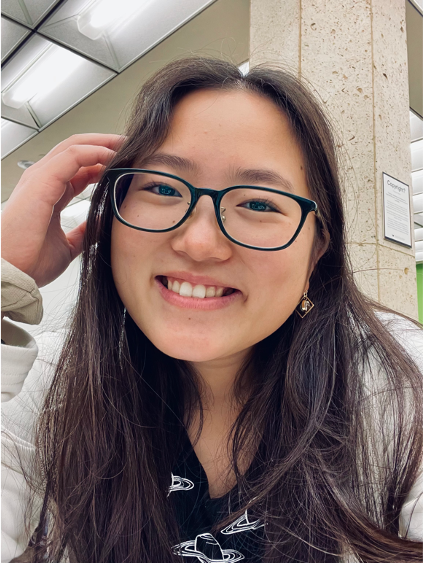 Rinka is a second-year Neuroscience major from Shanghai, China, pursuing a minor in business. Originally born in Japan, she is now fluent in English, Japanese, and Chinese. Rinka plans to design her field around the intersection of neurology and music therapy, as well as the connection between emotions and the body. Outside of Polymathic Scholars, she is actively involved as the president of the Japanese Association and has even formed her own band at UT. In her free time, Rinka loves watching animae and romcom movies, singing, occasionally composing her own songs, and swimming or playing tennis. Rinka is a member of the Outreach and Inclusion committee.
Rinka is a second-year Neuroscience major from Shanghai, China, pursuing a minor in business. Originally born in Japan, she is now fluent in English, Japanese, and Chinese. Rinka plans to design her field around the intersection of neurology and music therapy, as well as the connection between emotions and the body. Outside of Polymathic Scholars, she is actively involved as the president of the Japanese Association and has even formed her own band at UT. In her free time, Rinka loves watching animae and romcom movies, singing, occasionally composing her own songs, and swimming or playing tennis. Rinka is a member of the Outreach and Inclusion committee.niels levy-thiebaut
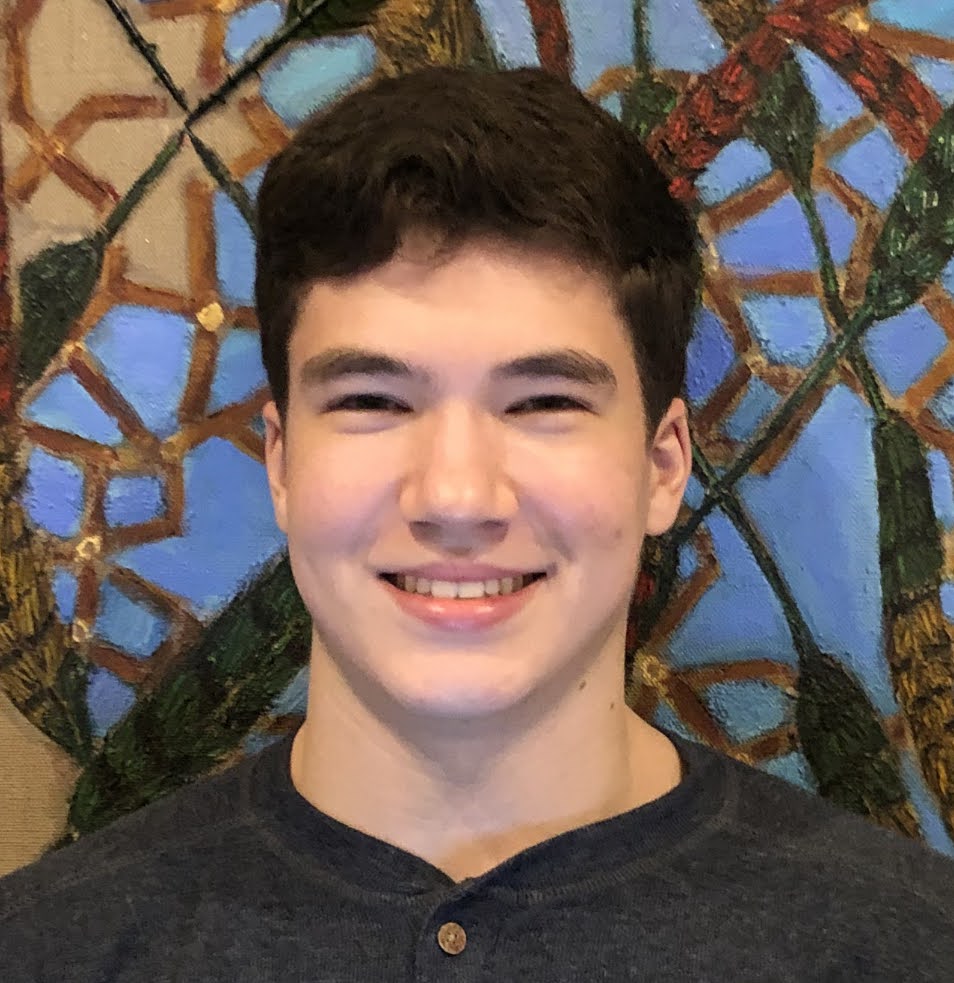 Niels is a second-year Biochemistry and Plan II double major from Houston, Texas. Though he has not created his field yet, he is interested in exploring the philosophy of science. Outside of Panel, he is the president of Reading Aces, an editor for the Texas Triple Helix journal, and a scriptwriter for the Polymathic Scholars’ very own The Unfinished Mind. He also enjoys powerlifting on UT’s team, teaching others French through UT PALS’ language circles, and learning other languages. After he graduates, Niels plans to attend medical school. Niels is a member of the Special Programs committee.
Niels is a second-year Biochemistry and Plan II double major from Houston, Texas. Though he has not created his field yet, he is interested in exploring the philosophy of science. Outside of Panel, he is the president of Reading Aces, an editor for the Texas Triple Helix journal, and a scriptwriter for the Polymathic Scholars’ very own The Unfinished Mind. He also enjoys powerlifting on UT’s team, teaching others French through UT PALS’ language circles, and learning other languages. After he graduates, Niels plans to attend medical school. Niels is a member of the Special Programs committee.
James LIU
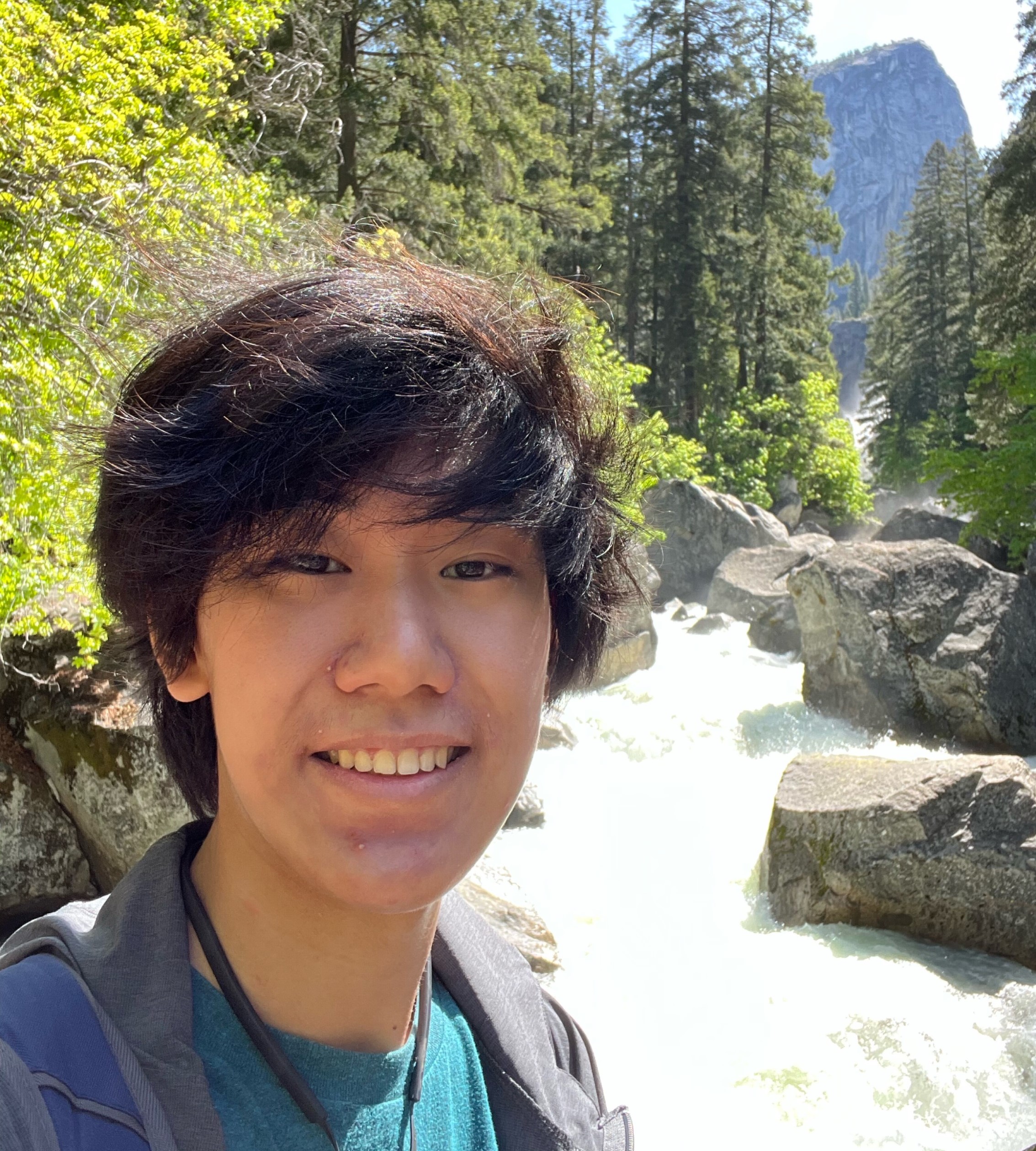
James is a second-year Computer Science and Mathematics double major pursuing a certificate in Quantum Information Sciences from Katy, Texas. He plans to design his field around the intersection of computer science and psychology or earth science. In addition to Polymathic Scholars, James is involved in ATX Science Olympiad, Chinese Student Association, and the Quantum Computing FRI stream. In his free time, he can be found binging sitcoms, trying to pet the raccoons, and attempting to break his MonkeyType record of 144.7 WPM. James is a member of the special programs committee.
sabrina lu
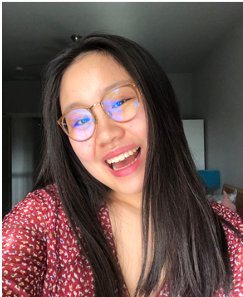 Sabrina is a third-year Neuroscience major from Arlington, Texas. She is also pursuing a minor in Chinese and Informatics. Her field, "In the Pursuit of Truth", explores the gaps between the ideal ideas of trust and the (mis)trust exhibited in the modern world, particularly in online spaces. Outside of Panel, she is part of the Suprasensors FRI Stream, Fika ATX, and Texas Spirits. In her free time, she enjoys singing, doodling, walking on trails, and trying new foods. Sabrina is a member of the Special Programs committee.
Sabrina is a third-year Neuroscience major from Arlington, Texas. She is also pursuing a minor in Chinese and Informatics. Her field, "In the Pursuit of Truth", explores the gaps between the ideal ideas of trust and the (mis)trust exhibited in the modern world, particularly in online spaces. Outside of Panel, she is part of the Suprasensors FRI Stream, Fika ATX, and Texas Spirits. In her free time, she enjoys singing, doodling, walking on trails, and trying new foods. Sabrina is a member of the Special Programs committee.
Emily pearson
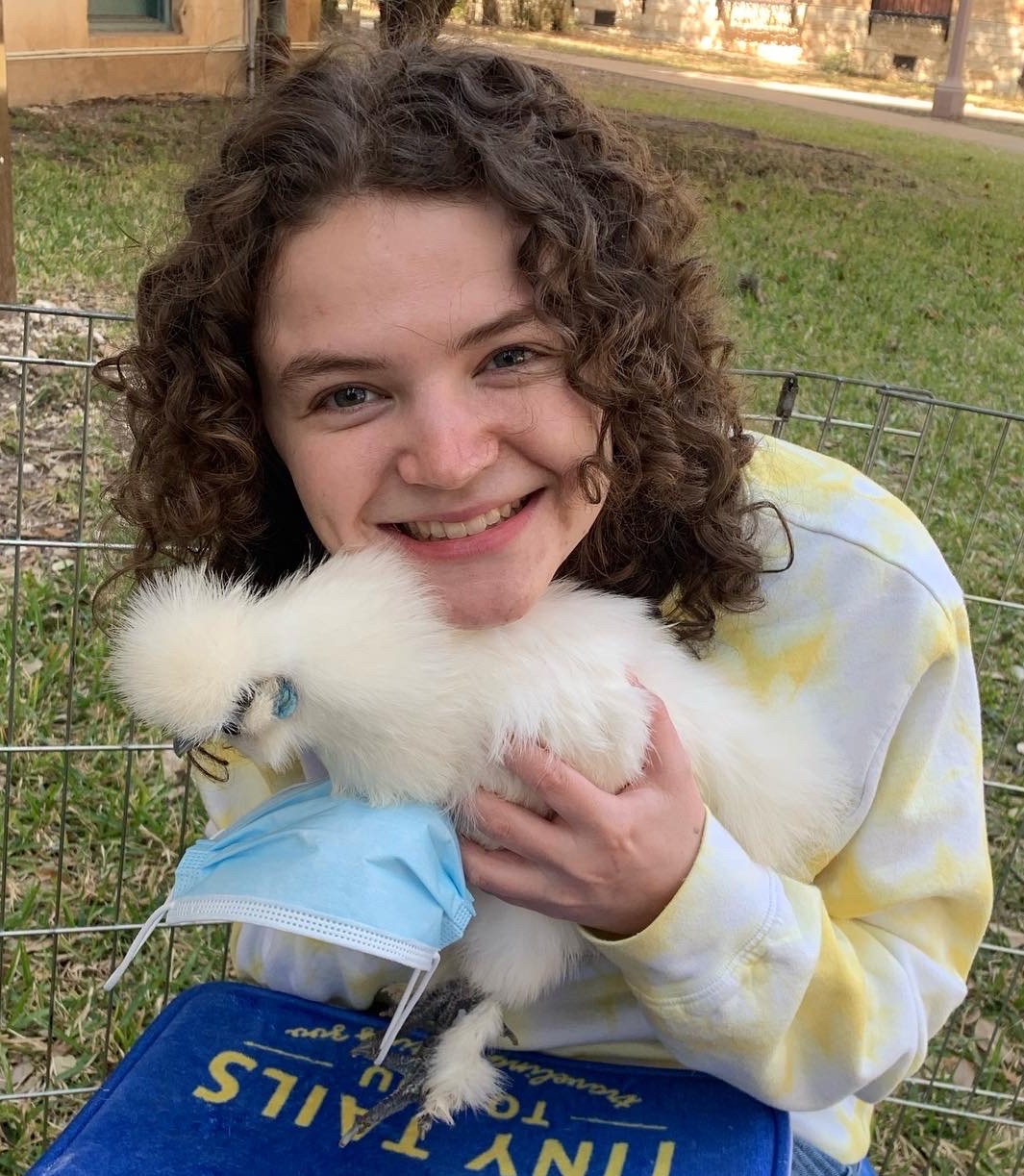 Emily is a third-year Polymathic Scholar pursuing degrees in Biology and Environmental Science from Flower Mound, TX. Her interests include ecology, botany, and human impact on ecosystems. Her field, "The Language of Trees", focuses on the communication that exists between trees in a forest. She is currently involved in the Society for Advancing Gender Equity in STEM and research with the Havird Lab. Outside of her studies, Emily loves bird-watching, roller skating, and doing art. After she graduates, Emily plans to go to graduate school. Emily is the chair of the Special Events Committee.
Emily is a third-year Polymathic Scholar pursuing degrees in Biology and Environmental Science from Flower Mound, TX. Her interests include ecology, botany, and human impact on ecosystems. Her field, "The Language of Trees", focuses on the communication that exists between trees in a forest. She is currently involved in the Society for Advancing Gender Equity in STEM and research with the Havird Lab. Outside of her studies, Emily loves bird-watching, roller skating, and doing art. After she graduates, Emily plans to go to graduate school. Emily is the chair of the Special Events Committee.
amelie perez
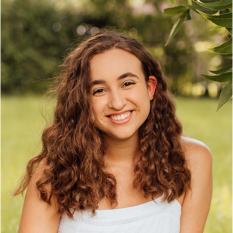 Amelie is a third-year Biology major from Tomball, Texas. She is also pursuing a Spanish for Medical Professions certificate. Though she has not created her field yet, she is interested in exploring literature and philosophy. Outside of Polymathic Scholars, she is involved with her FRI stream, Glow Worms, and Delta Epsilon Mu. In her free time, Amelie loves reading, baking, drinking tea, and being with her friends & her dogs. She plans on attending medical school in order to become a surgeon. Amelie is a member of the Outreach and Inclusion committee.
Amelie is a third-year Biology major from Tomball, Texas. She is also pursuing a Spanish for Medical Professions certificate. Though she has not created her field yet, she is interested in exploring literature and philosophy. Outside of Polymathic Scholars, she is involved with her FRI stream, Glow Worms, and Delta Epsilon Mu. In her free time, Amelie loves reading, baking, drinking tea, and being with her friends & her dogs. She plans on attending medical school in order to become a surgeon. Amelie is a member of the Outreach and Inclusion committee.
HAYA PRASLA
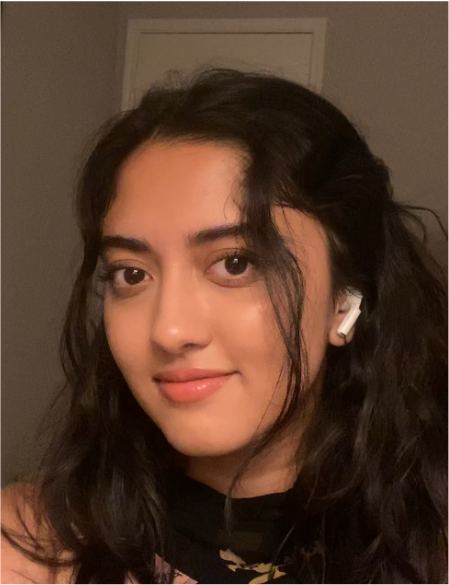 Haya is a second-year Polymathic scholar from Friendswood, TX who is pursuing a major in Biochemistry. Although she does not have a field yet, her interests are centered around nature-inspired design and biomimicry. On campus, she is involved in various sustainability-focused projects like Trash2Treasure and UT Outpost, where she serves as a volunteer. In her free time, she enjoys listening to music, daydreaming, dissociating and watching dramas. She also enjoys experimenting with fashion and doing henna on her lovely friends. Haya is a member of the Public Relations Committee.
Haya is a second-year Polymathic scholar from Friendswood, TX who is pursuing a major in Biochemistry. Although she does not have a field yet, her interests are centered around nature-inspired design and biomimicry. On campus, she is involved in various sustainability-focused projects like Trash2Treasure and UT Outpost, where she serves as a volunteer. In her free time, she enjoys listening to music, daydreaming, dissociating and watching dramas. She also enjoys experimenting with fashion and doing henna on her lovely friends. Haya is a member of the Public Relations Committee.
jensen richardson
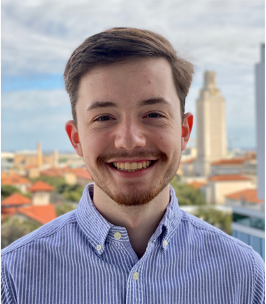 Jensen is a fourth-year Mathematics and Biology double major from Richmond, Virginia. His field is called "Ethical AI in Healthcare Policy" and deals with the introduction of AI into healthcare and the associated ethical dilemmas. He also works in a bioinformatics lab. In his free time he plays piano, listens to music, and enjoys playing trivia with his friends. After he graduates, he plans to go to graduate school. Jensen is the chair of the Outreach and Inclusion committee.
Jensen is a fourth-year Mathematics and Biology double major from Richmond, Virginia. His field is called "Ethical AI in Healthcare Policy" and deals with the introduction of AI into healthcare and the associated ethical dilemmas. He also works in a bioinformatics lab. In his free time he plays piano, listens to music, and enjoys playing trivia with his friends. After he graduates, he plans to go to graduate school. Jensen is the chair of the Outreach and Inclusion committee.
simran shah
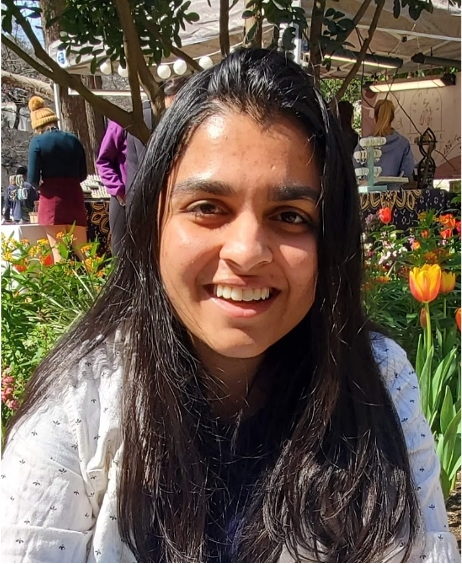
Ruth simpson
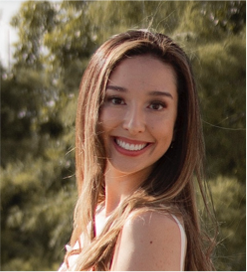 Ruth is a fourth year Polymathic Scholar from The Woodlands, Texas pursuing a major in Public Health and a minor in Business. Her interests include health equity for minority populations, social structures, gender studies, and health information technology. Outside of Polymathic Scholars, she has been involved in Delta Epsilon Mu, Freshman Research Initiative, Student Government, and Texas THON. In addition to volunteering at Dell Children’s Medical Center and working in a research lab, Ruth also enjoys spending her time outdoors being active, paddle boarding, exploring new places in Austin with friends, and working out. Ruth plans to attend medical school in order to become a physician.
Ruth is a fourth year Polymathic Scholar from The Woodlands, Texas pursuing a major in Public Health and a minor in Business. Her interests include health equity for minority populations, social structures, gender studies, and health information technology. Outside of Polymathic Scholars, she has been involved in Delta Epsilon Mu, Freshman Research Initiative, Student Government, and Texas THON. In addition to volunteering at Dell Children’s Medical Center and working in a research lab, Ruth also enjoys spending her time outdoors being active, paddle boarding, exploring new places in Austin with friends, and working out. Ruth plans to attend medical school in order to become a physician.
sydney suthar
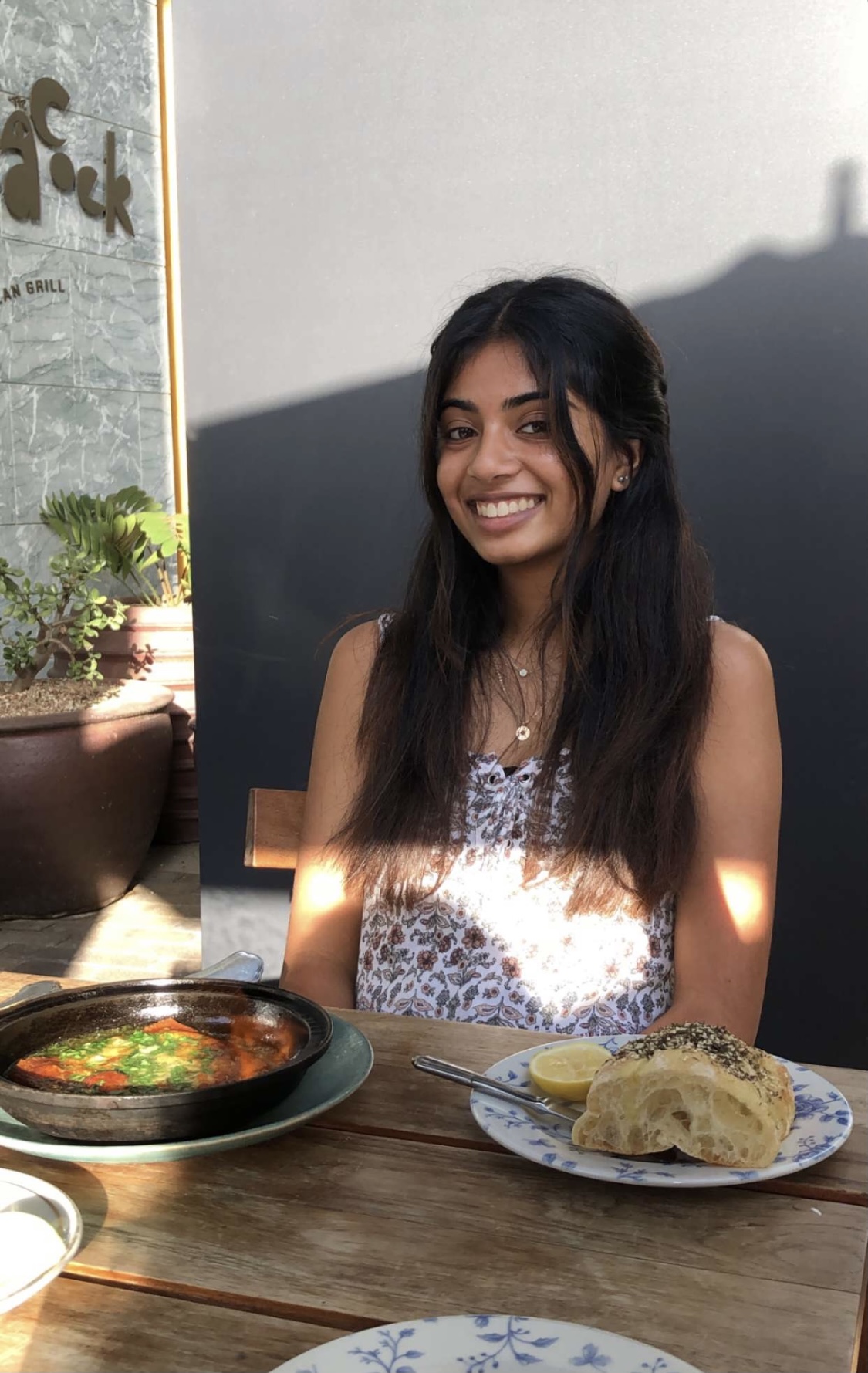 Sydney is a third-year Mathematics and Economics major pursuing a certificate in Elements of Computing from Austin, TX. Her field, "Money in the Wrong Hands", focuses on how campaign finance laws can promote a power structure in the United States government that has not changed much since its inception. On campus, she enjoys spending her time in Texas Bluebonnets, Fika ATX, and as a peer mentor in the Computational Materials FRI stream. In her free time, she enjoys listening to music, practicing martial arts, and exploring new cuisines. Sydney is the chair of the Special Programs committee.
Sydney is a third-year Mathematics and Economics major pursuing a certificate in Elements of Computing from Austin, TX. Her field, "Money in the Wrong Hands", focuses on how campaign finance laws can promote a power structure in the United States government that has not changed much since its inception. On campus, she enjoys spending her time in Texas Bluebonnets, Fika ATX, and as a peer mentor in the Computational Materials FRI stream. In her free time, she enjoys listening to music, practicing martial arts, and exploring new cuisines. Sydney is the chair of the Special Programs committee.
sophia tissembaum
 Sophia is a second year Polymathic Scholar from Austin, Texas. Her interests include sustainability, consumer behavior/behavioral sciences, entrepenuriship, and design. During Sophia’s freshman year, she participated in the Biodiversity Discovery FRI stream. In addition, Sophia is an active dancer and she hopes to continue her ballet training throughout her time at UT. Some of her hobbies include photography, jewelry making, and yoga. She also enjoys traveling, and listening to audio books. Sophia is a member of the Public Relations committee.
Sophia is a second year Polymathic Scholar from Austin, Texas. Her interests include sustainability, consumer behavior/behavioral sciences, entrepenuriship, and design. During Sophia’s freshman year, she participated in the Biodiversity Discovery FRI stream. In addition, Sophia is an active dancer and she hopes to continue her ballet training throughout her time at UT. Some of her hobbies include photography, jewelry making, and yoga. She also enjoys traveling, and listening to audio books. Sophia is a member of the Public Relations committee.
mally townsend
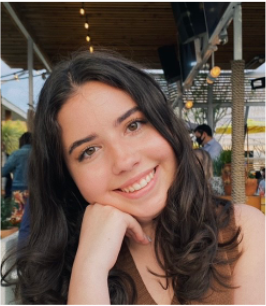 Mally is a fourth-year Neuroscience major from Flower Mound, Texas. For her field, she is interested in intersecting the fields of Neuroscience and Ballet by either exploring the causation of eating disorders in dancers, or how different coaching styles affect ballet performance and mental health. Apart from Polymathic Scholars, Mally is involved in her sorority Delta Gamma, the Freshman Research Initiative, fostering kittens through Austin Pets Alive, and volunteering at Dell Seton Medical Center. She spends her free time obsessing over Taylor Swift, taking dance classes, and spending time at Mozarts with friends. Mally is a member of the Public Relations committee.
Mally is a fourth-year Neuroscience major from Flower Mound, Texas. For her field, she is interested in intersecting the fields of Neuroscience and Ballet by either exploring the causation of eating disorders in dancers, or how different coaching styles affect ballet performance and mental health. Apart from Polymathic Scholars, Mally is involved in her sorority Delta Gamma, the Freshman Research Initiative, fostering kittens through Austin Pets Alive, and volunteering at Dell Seton Medical Center. She spends her free time obsessing over Taylor Swift, taking dance classes, and spending time at Mozarts with friends. Mally is a member of the Public Relations committee.
Tien vo
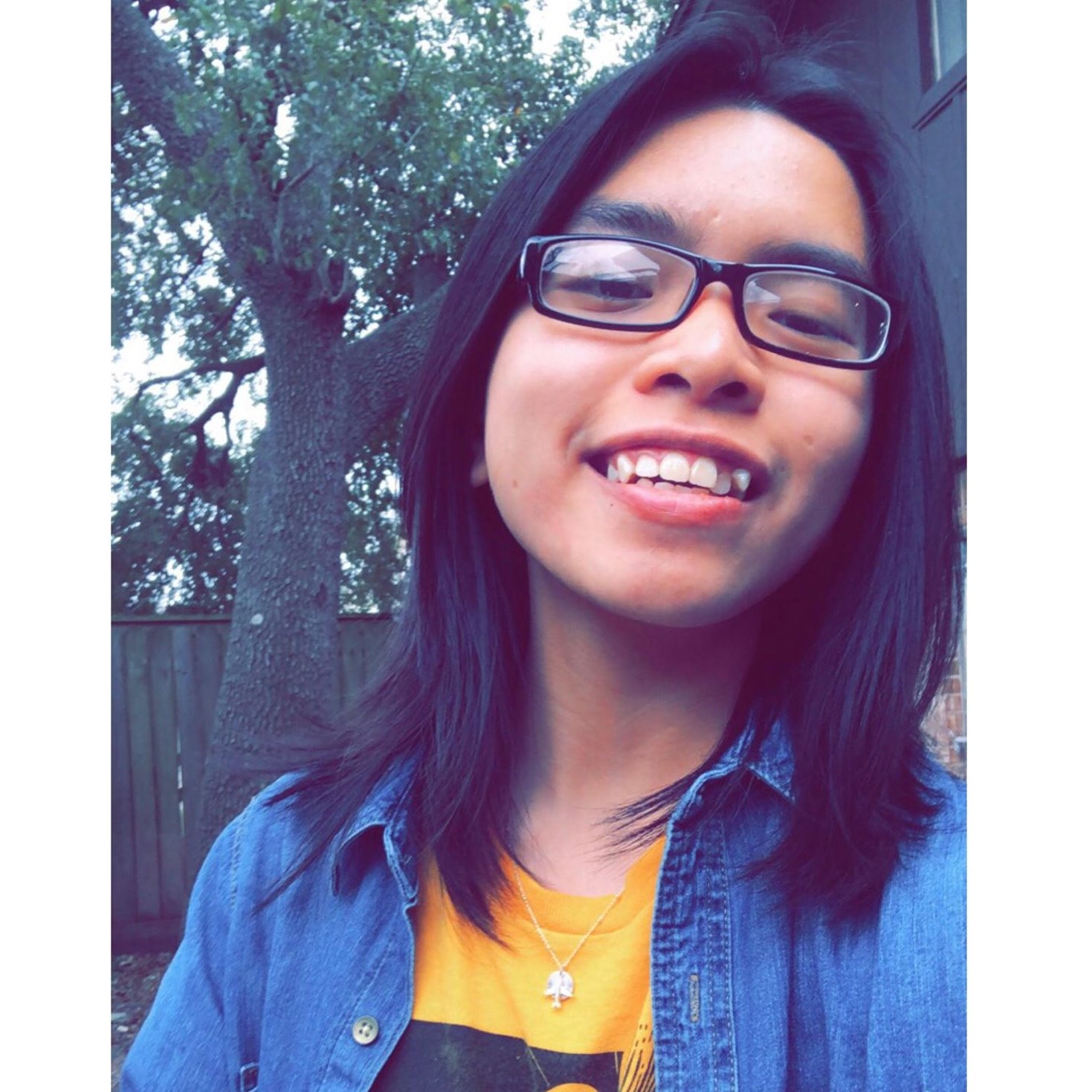 Tien is a fourth-year Mathematics and Government double major from Houston, Texas. Her current field analyzes the formation of political identification and seeks to understand the factors that influence moderates who lean toward a particular political party and not others. In her free time, Tien enjoys hiking, long walks around Austin, cooking, and making bad jokes with friends. Currently, she is exploring her variety of interests in Computer Science, Applied Math, and Social Science research. Tien is a member of the special programs committee.
Tien is a fourth-year Mathematics and Government double major from Houston, Texas. Her current field analyzes the formation of political identification and seeks to understand the factors that influence moderates who lean toward a particular political party and not others. In her free time, Tien enjoys hiking, long walks around Austin, cooking, and making bad jokes with friends. Currently, she is exploring her variety of interests in Computer Science, Applied Math, and Social Science research. Tien is a member of the special programs committee.
Neha yawalkar
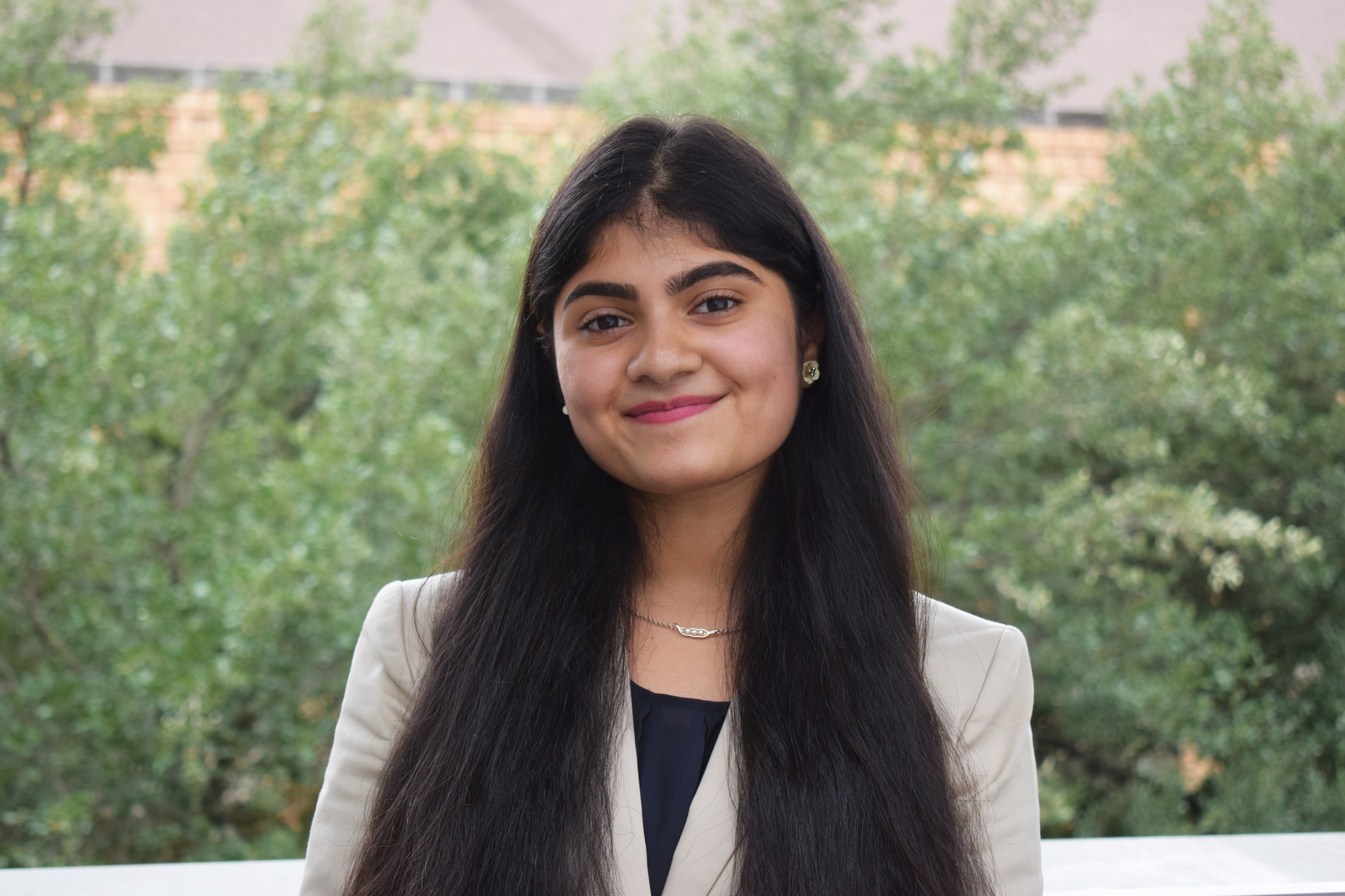 Neha is a second year Polymathic Scholar, pursuing a major in Neuroscience. She is a researcher in the DIY Diagnostics stream of the Freshman Research Initiative, Peer Mentor for the Jefferson Scholars Program, Team Manager for Project Advance Austin, and scriptwriter for The Unfinished Mind podcast. Born and raised in Edison, New Jersey, Neha now lives in Flower Mound, Texas. In her free time, she enjoys watching Bollywood movies, dancing K-pop choreographies, and volunteering at her hometown nursing home. She hopes to focus her thesis field on LGBTQ+ healthcare in India. Neha Yawalkar is the Public Relations Committee Chair.
Neha is a second year Polymathic Scholar, pursuing a major in Neuroscience. She is a researcher in the DIY Diagnostics stream of the Freshman Research Initiative, Peer Mentor for the Jefferson Scholars Program, Team Manager for Project Advance Austin, and scriptwriter for The Unfinished Mind podcast. Born and raised in Edison, New Jersey, Neha now lives in Flower Mound, Texas. In her free time, she enjoys watching Bollywood movies, dancing K-pop choreographies, and volunteering at her hometown nursing home. She hopes to focus her thesis field on LGBTQ+ healthcare in India. Neha Yawalkar is the Public Relations Committee Chair.CNS Honors & Scholarships
CNS Honors & Scholarships (formerly, CNS Honors Center) was created in 2013 to support the educational aspirations of some of the country’s most promising science students at one of the world’s leading research universities. The Center’s mission is to expand the College’s capacity to recruit extraordinary students—and foster extraordinary student achievements—through a diverse portfolio of world-class honors programs. Dean’s Scholars (DS), Health Science Scholars (HSS), and Polymathic Scholars (PS) have been designed to appeal to students with different aptitudes and goals. Each, however, gives talented and motivated students unprecedented access to rigorous courses, authentic research opportunities, outstanding faculty, innovative degree plans, dedicated advising, and community-building event programming. The programs are designed to increase individual student attention and promote exploration of academic, cultural, and social interests through small intellectual communities of scholars. Collectively DS, HSS, and PS serve about 500 students.
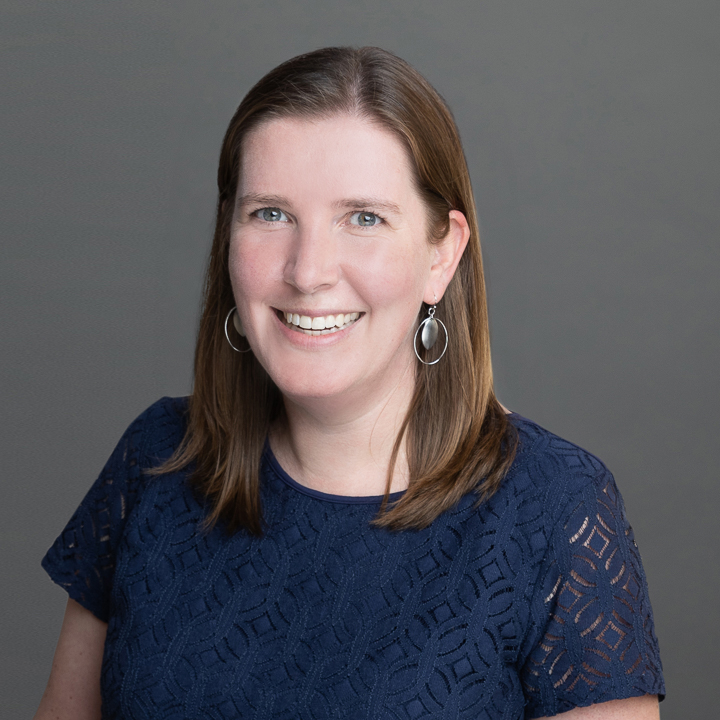 Sara Corson | Director
Sara Corson | Director
sara.corson@austin.utexas.edu
Sara oversees CNS Honors & Scholarships in its day-to-day operations including honors student programming and curriculum, honors program admissions and recruitment, faculty involvement and mentorship, and alumni support. She holds a Ph.D. in Neuroscience from the University of Virginia.
 Mark Hemenway | Academic Advisor
Mark Hemenway | Academic Advisor
markhemy@austin.utexas.edu
Mark is the academic advisor for students in Dean’s Scholars and Health Science Scholars. He enjoys having the opportunity to work with honors students from Orientation through graduation and is a good place to start with any questions related to UT. Mark is a recent recipient of the James W. Vick Award for academic advising.
 Rebecca Wilcox | Thesis instruction, Academic Advising
Rebecca Wilcox | Thesis instruction, Academic Advising
rebecca.wilcox@austin.utexas.edu
Rebecca teaches the Capstone thesis seminars and preparatory thesis workshops for Polymathic Scholars and Health Science Scholars. She also assists with recruitment and administration for DS, HSS, and PS. Previously, she coordinated UT-Austin’s Office of Undergraduate Research and taught English and writing at West Texas A&M University. She holds a Ph.D. in English from UT-Austin.
What Is the PS Honors Program?
Polymathic Scholars, the newest college-wide honors program in the College of Natural Sciences, is designed for undergraduates committed to the sciences who also have passionate interests beyond them. The program’s mission is to foster these students’ creative curiosity by helping them integrate their diverse interests into an academic degree plan that’s both rigorous and personally rewarding.
Those interests might be public policy questions that concern scientists, or they might have nothing to do with science. What they have in common are interesting questions—questions that require expertise from different branches of knowledge, interdisciplinary questions. And a major research university like UT-Austin is the ideal setting for answering them.
In their second year, Polymaths determine their questions, identify the courses and faculty relevant to answering them, and design a field of study in a written proposal that’s reviewed by faculty members affiliated with the program. The classes listed on the field proposal will constitute a certificate curriculum. Certificates are similar to minors: they allow students to complement their major with coordinated coursework outside their major on a subject of interest. The distinctive feature of Polymathic certificates is that each is conceived not by the university, but by the students themselves. The coursework, formally recognized on transcripts as the Evidence and Inquiry certificate, is a component of the College’s Bachelor of Science and Arts honors degree.
The hallmark experience of the Polymathic Scholars program is the Capstone project, for which students write an honors thesis on a research question within their field of study. We hope they will submit part or all of their work for publication. Polymaths also present their Capstone work to the public during Research Week in the Spring of the year they write their theses.
But Polymathic Scholars are also a community, diverse in background yet like-minded in their sense of curiosity. Faculty and members of the CNS Honors Center endeavor to create for Polymaths a small-college oasis within a resource-rich, world-class research university.
Who Is Selected?
The Polymathic Scholars program is highly selective, admitting about fifty first-year students each year. A small number of openings are also reserved for second-year students who have distinguished themselves in their first year of college, whether at UT-Austin or another institution. The program looks for students with a high level of academic and community accomplishment and a strong interest in science, as well as an aptitude for and achievement in one or more areas outside the sciences. Polymathic Scholars typically achieve high class rankings, but admission is not based solely on these criteria. Equally important in the selection process is evidence of an applicant’s work ethic and thoughtful ownership of intellectual and creative pursuits both within and beyond the sciences.
What Does the PS Program Entail?
ACADEMIC ADVISING
Overview. Polymathic Scholars (PS) are advised in the Honors Center throughout their undergraduate years at UT.
Registration. PS students must schedule an appointment with their academic advisor before course registration each semester. At this advising session, students will review degree plans to assess what degree requirements have been completed and which ones are still needed. Advisors will contact students at least two weeks prior to registration for the next semester.
MAJOR DEGREE PLAN
Overview. Nearly all Polymathic Scholars complete a Bachelor of Science and Arts degree plan in a department within the College of Natural Sciences. The BSA combines a science emphasis with sufficient electives to create a truly cross-disciplinary undergraduate curriculum. Students can augment their science coursework with study in the humanities, communication, business, education, social sciences, or the arts. After graduation, the student’s transcript will reflect receipt of a BSA degree with honors if the student completes PS in good standing. Like all UT students, Polymathic Scholars must also complete “common core” requirements to obtain their degree from UT.
Placement or exam credit. In general, placement or exam credit is not accepted in lieu of science courses that are required for a degree plan. The CNS honors courses offer instruction that challenges our very best students while providing an in-depth background in each discipline. These courses are integral to the experience of an honors education, and placement or standardized tests typically cannot be substituted. Some students may be able to use AP exam scores to receive credit for lower-division mathematics and physics courses if they wish to be placed in higher level math or physics. The Polymathic Scholars program does accept exam credit in other Core areas such as history, government, rhetoric, English, the social sciences, fine arts, etc. These are the only exceptions to the placement-credit rule. Your academic advisor can provide more information about claiming credit based on test scores and/or previously completed college-level coursework.
HONORS COURSEWORK
Overview. Polymaths take coursework designed for honors students. Some of these courses are honors versions of courses that are part of the BSA degree plan. Others are seminars that count as electives and are required for completing the program.
Polymathic Scholars Coursework Timeline
Year 1 (5 to 8 credit hours)
- UGS 303: Originality in the Arts and Sciences (Fall)
- NSC 110H: PS First-Year Seminar (Fall and Spring)
- Optional: Freshman Research Initiative lab credit (Spring)
Year 2 (5 to 8 credit hours)
- NSC 109, Topic 4: Polymathic Capstone Field Invention (Fall)
- NSC 110H: CNS Honors Seminar (Spring)
- Capstone Field Course(s) (Spring)
Year 3 (8 to 11 credit hours)
- NSC 110H: CNS Honors Seminar (Fall and Spring)
- Complete Capstone Field Courses (Fall and Spring)
- PS Thesis Planning Workshops (Fall and Spring)
Year 4 (6 credit hours)
- NSC 323, Topic 1: PS Capstone Thesis Preparation Seminar (Fall)
- NSC 371: Capstone Thesis Seminar (Spring)
POLYMATHIC SCHOLARS COURSEWORK DESCRIPTIONS
NSC 110H/PS First-Year Seminar: Freshmen participate in a year-long first-year seminar led by Dr. Alex Huk, PS program faculty director. The goal of NSC 110H / PS First-Year Seminar is to introduce students not only to some of the university’s finest teachers and researchers, but also to the range of intellectual work on campus.
UGS 303 Originality in the Arts and Sciences: In their first semester, Polymaths enroll in this Signature course for CNS honors students that satisfies the research methods course requirement for the Freshman Research Initiative (FRI). In their second semester, Polymaths have the opportunity to initiate and engage in real-world research experience with faculty and graduate students through the FRI, which has many research streams in various science disciplines.
NSC 110H/CNS Honors Seminar: One of the major advantages of being a CNS honors student is having access to small seminars that connect students with some of the university’s best teachers and top researchers. These seminars help create the honors community of scholars and introduce students to acclaimed faculty in a small-group setting. Topics and instructors vary from semester to semester. Students choose a seminar to take in spring of their sophomore year and in fall and spring of their junior year.
PS Thesis Planning Workshops: These workshops are required for all Polymaths who plan to write their theses in the following academic year (typically third-year students who will write theses as seniors). Polymaths will take several one-hour workshops to support their progress toward successful completion of their theses.
NSC Capstone Seminars: PS-specific seminars walk students through their Capstone experience.
- NSC 109, Topic 4: Polymathic Capstone Field Invention: This second-year PS-specific seminar guides students through the process of figuring out what they would like to study, determining which academic disciplines are relevant, and writing a proposal for faculty review that defines and defends their aims and scope.
- NSC 323, Topic 1: PS Capstone Thesis Preparation Seminar: In this fourth-year seminar, students develop a focus for their Capstone research. Students determine their research question and the scope of their project, conduct research, and begin work toward the thesis itself.
- NSC 371, Capstone Thesis Seminar: Students are provided research and writing support while writing their honors thesis under the direction of one or more faculty supervisors.
RESEARCH EXPERIENCES
Why research?
The world of academia is changing, and for the better. Evolving technologies and accelerated curricula afford high school students opportunities for intellectual growth that stand in stark contrast to the traditional classroom setting. College learning environments are evolving at an even faster rate, and the idea that a college degree is earned simply by passing exams in 40 lecture courses is subsiding at elite colleges and universities. Polymathic Scholars are expected to realize their full potential, not just by earning high marks in their classes, but by exploiting the greatest resource the University of Texas at Austin has to offer: the research prowess of its faculty.
The University of Texas at Austin is an exceptional research university. The College of Natural Sciences provides an academic home to some 400 or so tenure-track faculty, and many hundreds of other adjunct faculty, who achieved their standing in the scientific and academic community by demonstrating the ability to engage in independent, innovative scientific inquiry. Simply put, they are the people who discover new knowledge, and when UT students listen to a lecture or open a textbook, it is almost certain that what they are reading was discovered on a college campus. It is a priority of the Polymathic Scholars program that as soon as possible, students will find themselves working side by side with a professor and discovering new knowledge in a discipline of interest to them.
In order to become part of the research arena in the College of Natural Sciences, an array of special courses and programs have been developed to assist Polymaths. Each of these is described below.
UGS 303, Originality in the Arts and Sciences. Polymaths’ accelerated involvement in research begins during a course taken in the fall of their first year. Through UGS 303, Originality in the Arts and Sciences, they will learn to frame important questions about the world and to answer them through principled research methods. While all honors students must take UGS 303, they will be free to choose the particular kind of research project they complete for this course. Dr. Arturo De Lozanne leads this course, along with a staff of teaching assistants who provide students with individualized attention.
Freshman Research Initiative. Polymaths are automatically admitted to the critically acclaimed Freshman Research Initiative. The FRI is a three-semester sequence that begins with a research methods course (UGS 303, Originality in the Arts and Sciences for honors students) and then places students in a spring semester research laboratory to learn the techniques employed in one of over twenty research streams. Typically, the laboratory placement partially satisfies a lab course requirement for each major degree plan, with more authentic research participation than non-FRI “off the shelf” lab courses.
In addition, FRI helps students find summer research internships and other independent inquiry experiences in the fall semester of their sophomore year. After that, many honors students choose to assume peer leadership roles within FRI, such as becoming an FRI mentor for new students or a research assistant. Many honors students also parlay their FRI research placements into long-term collaborations with senior researchers in a wide range of labs accross campus. Students who have questions about FRI should contact their academic advisor.
Research opportunities beyond FRI. We advise students to not limit their research experiences to those provided by FRI. We encourage students to utilize the university’s many online resources to find opportunities to collaborate with faculty (e.g., Eureka, faculty webpages, departmental webpages). Students should turn to others as well—their academic advisor, professors, fellow students, and Honors staff—to help them learn about ways to become part of the teams that make UT a top-ranked research university. In fact, several student-run organizations facilitate this search for research opportunities. SURGe—Science Undergraduate Research Group—is a good place to start.
There is no correct answer as to how to find “the right” faculty member(s) to work with. For some students, it is the simple consequence of a chance conversation with a professor after class. Others need to view it like applying for a job—they become knowledgeable about the professors whose work interests them, make appointments, and start knocking on doors. The good news is that the opportunities are plentiful and there will always be a place for students who make the effort.
The PS Honors Thesis
Overview
College honors programs typically culminate in a significant academic project in addition to the student’s coursework for his or her major. The Evidence & Inquiry Capstone thesis satisfies this tradition in the spirit of the Polymathic Scholars program, which encourages students to forge connections across traditional disciplinary boundaries as they develop their academic interests. Capstone projects may also open opportunities for acknowledgement through awards or publication, and they add depth to applications to graduate schools, professional schools, or jobs after graduation. Most importantly, however, graduates often tell us that the Capstone thesis is the most rewarding accomplishment of their undergraduate career.
The Capstone project satisfies the College of Natural Sciences’ honors program thesis requirement for Polymathic Scholars.
Timeline
Students pursuing the Evidence & Inquiry certificate usually develop their unique fields of study in the fall of their second year at UT. In their third year, they take a series of one-hour workshops designed to help them start planning for their theses, including brainstorming possible topics and finding faculty mentors. At the same time, they are taking field courses that facilitate exploration of their fields of study. Students who plan to conduct primary research should initiate this process in the third year as well. Ideally, students complete field courses before beginning their final year in the program so that they may draw upon a broad range of work as they narrow their thesis topics.
Students formally embark upon the thesis process in the fall of their final year, when they enroll in NSC 323, Topic 1: PS Capstone Thesis Preparation Seminar. This seminar supports the research process. Working with one or more faculty mentors as well as peers during class meetings, students consider appropriate thesis topics, write a short thesis proposal, and develop an initial plan for drafting the thesis. NSC 323 typically meets one hour per week, allowing extra time for independent reading and research.
Polymaths do the bulk of their writing and complete the thesis during the spring of their final year in the program, when they enroll in NSC 371: Capstone Thesis Seminar. This seminar structures the writing process, supports the development of a public thesis presentation, and offers students opportunities to receive feedback on their work-in-progress. The course syllabus includes a series of deadlines for incremental assignments and drafts of the thesis. NSC 371 typically meets two hours per week, allowing extra time for independent research and writing.
| 3rd Year | Fall 4th Year (NSC 323) | Spring 4th Year (NSC 371) |
| Field courses & workshops | Finalize thesis mentor | Continue research |
| Talk with mentors | Narrow topic | Draft and revise thesis |
| Brainstorm topics | Secondary research | Give thesis presentation |
| Begin primary research if applicable | Proposal & outline | Explore publication |
Topic Selection
Your Evidence & Inquiry Capstone thesis must be connected to your E&I field of study, and should emerge out of expertise you develop in your field through courses and research. Although topics vary widely, every thesis is expected to pose a question (or a set of interrelated questions) and present evidence appropriate to the disciplines involved to develop an argumentative answer to that question.
Developing a topic takes time. To explore possible thesis topics within your field of study, we encourage you to talk with professors, classmates, mentors, and advisors and to read independently and extensively.
As you consider topics, think not only about questions you want to investigate and things you are curious about, but also about goals you may have for your Capstone work. Most students develop topics that may be readily explored through secondary research. Theses based on secondary research may involve the systematic review and synthesis, analysis, and interpretation of existing sources of evidence, such as peer-reviewed journal articles, data sets, government reports, and scholarly books. Though students pursing secondary research may not collect original data, they do present original arguments based on their own analysis and new ways of looking at existing data. Your own conclusions, based on research and evidence, are central to the secondary research thesis.
Some students may wish to collect original data and base their thesis on primary research. This research often involves designing a study and collecting data through surveys, interviews, lab work, or research in the field or in an archive. As is the case for secondary research, the student’s faculty mentor(s) should be involved in choices about how to approach the project. Primary research is usually begun no later than the student’s third year.
If you plan to collect primary data using humans, animals, or potentially dangerous materials for your thesis, you must apply for and receive the university’s approval, even for a simple survey of fellow students. Your faculty mentor will need to sponsor your application, and official approval must be granted before you may begin data collection. Gaining approval can take several months, depending on the proposed project and other factors outside of your control (such as the caseload and meeting schedule of the review board). Any student who is interested in original data collection should refer to the website of the Office of Research Support and Compliance and talk with an ORSC advisor related to their field of study. For more information, visit https://research.utexas.edu/ors/.
Polymaths are also encouraged to consider primary research projects based on analysis of archival records such as those housed in UT’s Harry Ransom Humanities Research Center, the Briscoe Center for American History, the LBJ Library, the Benson Latin American Collection, or even a national repository such as the National Archives in Washington, D.C. Archival materials take many forms, from historical photographs and clothing to personal letters and government records. Though archival research is typically complex and time-consuming, it offers rich opportunities for truly original work. At UT, archivists are often excited to help students brainstorm how their holdings may be used in new and unique ways.
Thus, as you consider possible thesis topics, also think about the methods with which you hope to gain experience through your Capstone work, whether it is based on primary research, archival research, or secondary research.
Faculty Mentors
Students typically seek guidance from one or more faculty mentors as they develop and refine a thesis topic. Though you are encouraged to talk with multiple faculty members about your ideas, you will choose one primary mentor who is willing to formally supervise your thesis process.
Your primary thesis mentor should be a UT-Austin faculty member with expertise in at least one significant area related to your field of study. Mentors may be faculty members of any rank, typically either a professor or a lecturer. Graduate students are not eligible to serve as primary thesis mentors, but may provide secondary mentorship with the consent of the primary mentor.
To find a suitable mentor, you will need to do some research. You should talk with your professors, TAs, advisors, and fellow students about your ideas for your project; search UT’s Eureka database; explore departmental websites; and read professors’ published papers to identify faculty whose interests overlap, at least partially, with your field.
You are responsible for initiating contact with faculty members who might be potential mentors and for asking one of them to supervise your work. Some faculty members may not be able or willing to supervise your thesis, so start this process early and get to know several professors with interests in your field. One of the Thesis Planning workshops you attend in your third year will address strategies for finding and approaching possible mentors. You will be expected to have a faculty mentor who has agreed to supervise your thesis no later than the beginning of your final year. When you ask a faculty member to serve as your mentor, be sure to provide this professor with the Evidence & Inquiry Guidelines for Faculty Mentors. In the fall of your final year, you will submit a Thesis Registration Form, which your mentor signs in acknowledgment of his/her commitment to supervising your work. You will not be permitted to take the required thesis-writing seminar, NSC 371, without a signed Thesis Registration Form.
Briefly, the role of a faculty mentor is to guide your research, critique your ideas and drafts, and participate in evaluating your final thesis. You are expected to meet with your mentor regularly; meeting at least once per month in the fall and at least every other week in the spring of your thesis year is recommended. Make sure that you and your mentor share clear expectations regarding topic, disciplinary conventions, and meeting times. Some faculty mentors may require students to demonstrate evidence of progress beyond the deadlines outlined in the NSC 323 and 371 syllabi.
The Capstone Thesis
The Capstone thesis is a substantial scholarly work that represents the pinnacle of your academic achievement at the undergraduate level. As noted above, each thesis is unique, and develops out of each student’s individual field of study. However, the guidelines below apply generally to all Capstone theses. If you have concerns about whether your project will meet the expectations outlined below, consult with the NSC 371 instructor before beginning your work.
Thesis Standards
Different disciplines have different standards. Consider standards of evidence, for example; numeric data and inferential statistical analyses back up many sociology professors’ arguments about the nature of poverty in America. However, archived photographs of the poor—combined with subjective interpretations of their meaning—constitute evidence for many American studies professors. Different disciplines also have different conventions for appropriate methodologies, writing style, citation, formatting, structure, and argumentation. You will work with your faculty mentor(s) to determine the appropriate standards specific to investigating and writing about your topic.
Argument
The thesis must be a persuasive, evidence-based paper that answers a genuine research question (or set of interrelated questions) related to your field of study. Research questions should address complex problems that cannot be resolved by a simple, binary response or accepted facts. Your research question should position you to offer an answer that adds something unique to scholarly conversations on your topic. Though you will certainly include brief summaries of some of the most influential work that has already been published in your field, your analysis will reveal new ways of understanding this work. The answer to your question(s) should take the form of an argument—an original claim with supporting reasoning and evidence, communication of research findings, acknowledgement of alternative viewpoints, and a cogent conclusion.
Methodology
Your thesis should reflect conventions typical of the main discipline(s) in which your topic is situated. You and your faculty mentor should agree on what methods you will employ and how to communicate them accurately and effectively. For instance, if you are synthesizing a large, complex body of literature on a topic, you need to develop and implement clear decision rules for when to include or exclude sources to answer your research question(s). These decisions must be made apparent to your readers so that they know how you arrived at your answer.
Audience
Write this paper for well-educated, intelligent people who are not necessarily experts in your particular topic area. Your immediate audience will be your peers in Polymathic Scholars and your mentors and instructors for the thesis. Therefore, if you need to use technical terminology in your work, strive to define this discipline-specific jargon. You should include enough background in your introductory material to ground a non-specialist in the field and help this reader understand the significance of your argument.
Students who hope to publish their work in a discipline-specific journal will revise their paper for a more specialized audience after submitting the thesis. Because the purpose and conventions of a Polymathic Scholars thesis differ from those of a published article, substantial revision prior to publication is typical.
Please keep in mind that E&I theses cannot be kept confidential. In addition to sharing your work with fellow students, you are expected to attempt to publish your thesis by submitting it (or a revised version of it) to an approved peer-reviewed publication. Thus, you should write about topics and ideas you are willing to share with others.
Length
Our length guideline is 30-40 pages—or about 8,000-12,000 words—of double-spaced body text, plus the cover page, abstract, references, and any figures, tables, or appendices you choose to include. You and your mentor(s) may need to discuss whether the length of the thesis should be adjusted in order to adequately address your research question. The thesis seminar instructor should be involved in any such conversation.
If you are writing a combined thesis for PS and another honors program, expect length guidelines to increase. Coordinate with both programs before the end of your third year to allow time for negotiation.
Citations and References
You must cite your sources of information and give credit for ideas and phrases that are not your own. Citations should follow standard guidelines appropriate to your discipline—for instance, APA, MLA, or AMA. Most students use a citation style involving in-text parenthetical citations and a complete references list; however, some styles use footnotes or endnotes for citations. Talk to your faculty mentor about preferred citation styles in your discipline.
The appropriate number and type of citations depends on your topic and your research question(s). Your goal should be to conduct a complete, unbiased search for sources. As a general observation, most successful PS theses engage a minimum of 25 scholarly sources.
Format
Your thesis should meet the following formatting requirements:
- A Polymathic Scholars/E&I signature page as the cover sheet
- Neatly laser-printed (preferably printed on both sides of the page to conserve paper)
- Numbered pages
- One-inch margins, double spacing, and 12-point standard serif font (Times New Roman is preferred)
- Additional formatting appropriate to the field (consult your supervisor)
- Careful proofreading. A thesis with more than a few errors in spelling, grammar, or punctuation is not acceptable.
Additional formatting guidelines will be provided through the NSC 371 thesis seminar and discussion of disciplinary considerations with your faculty mentor.
Thesis Submission
You will write your thesis and take the NSC 371: Capstone Thesis Seminar concurrently. Though much of your writing will be done independently, weekly seminar meetings will help you stay on track with thesis deadlines and requirements. The syllabus will provide more information about what to submit and when. Typically, the final thesis is due the week after classes end in May.
You will be expected to submit a digital copy of your thesis through the course Canvas site as well as an original, signed hard copy submitted to the thesis seminar instructor or the Honors office. It is not necessary to have your thesis professionally bound.
Evaluation
The grade for your thesis is assigned as part of your grade for NSC 371: Capstone Thesis Seminar. The thesis grade represents a significant part of your grade for the course, but your demonstration of consistent progress through incremental assignments, your Capstone presentation, and your participation in class activities also contribute to your grade for the course. Details on specific grading policies may be found in the syllabus for NSC 371.
Your thesis will be evaluated independently by your faculty mentor and a member of the Honors faculty, typically the NSC 371 instructor. Your mentor will submit his/her grade recommendation form directly to the NSC 371 instructor; this grade is averaged with the Honors faculty member’s evaluation. This grading process is designed to ensure that students’ work is reviewed by professors with expertise in the relevant fields of study while also maintaining consistency of evaluation across the breadth of the program.
Here are the criteria that your mentor will be provided as the standard, overarching approach to grading a Polymathic Scholars thesis:
- A grade of A (exemplary) on the final thesis should be assigned for thorough research, familiarity with authoritative sources and methods of the discipline, a well-reasoned analysis of the research methods and sources used, direct application of the research to the argument being made, a cogent conclusion based on the research, and superior written presentation of the thesis argument.
- A grade of B (better than required) should be assigned for a thesis that demonstrates all of the above, but may use fewer or less appropriate research sources and methods, and sufficient (rather than superior) written presentation.
- A grade of C (as required but no better) will indicate a basic grasp of the data and appropriate sources, limited application of the research towards the argument being made, and merely acceptable written style.
- A grade of D (barely passable) indicates minimally acceptable research findings in addition to poor analysis and writing standards.
- A grade of F is appropriate where the thesis represents a crudely thrown-together or last-minute effort or even evidence of unoriginal work.
It is your responsibility to communicate with your mentor about expectations, deadlines, and feedback. If you feel you are not communicating effectively with your mentor, you should address this issue with him/her and/or your NSC 371 instructor as early as possible.
Additional Information
Sample theses and information about the Evidence & Inquiry Certificate are available for review. If you have further questions about the Capstone thesis, you may contact Dr. Rebecca Wilcox at (512) 232-5930 or rebecca.wilcox@austin.utexas.edu. You may also contact the main CNS Honors & Scholarships office in PAI 5.37.
Faculty Mentor Guidelines
THE POLYMATHIC SCHOLARS CAPSTONE THESIS PROJECT
OVERVIEW
Polymathic Scholars (PS) is a multidisciplinary honors program for undergraduates in the College of Natural Sciences. Students who fulfill all the requirements of the program, including the capstone thesis project, will also earn an Evidence & Inquiry certificate.
In their second year at UT, PS students develop their Polymathic “field of study,” the broad area of study at the intersection of two or more disciplines that they wish to explore through coursework during their sophomore and junior years in the program. Polymaths take a minimum of four faculty-approved courses in their self-designed field. This coursework prepares them to define and explore a related but narrower topic through their capstone thesis.
During their final year in the program, students write their capstone thesis. The thesis is a persuasive, well-reasoned, evidence-based paper that answers a question (or interrelated set of questions) aligned with the student’s field of study. Students engage in and contribute to scholarly conversations on their thesis topics as well as reporting on their own findings. Some students will revise their theses for publication, either in an undergraduate research journal or in a discipline-specific journal related to the field (with their faculty supervisor’s support).
The PS program encourages students to seek multiple mentors for their capstone projects, but requires students to secure the support of at least two UT faculty members (or, for a second reader, another appropriate and approved mentor with relevant expertise) to supervise their thesis work. Students are responsible for maintaining contact with their faculty mentors, setting up meetings, and asking for discipline-specific guidance. Faculty mentors are responsible for offering guidance on conceptual development and feedback on the written draft. They are also responsible for submitting a grade recommendation for the thesis at the end of the spring term. For additional detail, see below.
THE THESIS
Overview
PS students must meet programmatic expectations for the thesis in order to complete the PS program and the E&I certificate. The typical Polymath thesis is about 30–40 pages (or 60 for students double majoring with Plan II), double-spaced, plus references and any graphics or appendices the student may choose to include. It should be written for a well-educated but non-specialist audience.
The PS thesis is inspired by a student’s experiences, observations, discussions, and readings in their field courses, which help the student to identify and refine a research question or related set of questions for the thesis project. PS thesis projects may involve original data collection, or they may present original analysis of existing data or scholarly literature. For example, students have performed content analyses, systematic literature reviews, policy reviews, and developed proposals for future research as part of satisfactory PS theses. We encourage students to talk with faculty mentors about appropriate and feasible methodological approaches early in the student’s thesis year, if not before.
Students who want to conduct human subjects research will need IRB approval, and should start the IRB process no later than the summer before their thesis year.
Coursework
In addition to their four field courses, PS students take the program’s thesis seminar sequence, NSC 323 in the fall and NSC 371 in the spring of their final year in the program. Broadly, these seminars offer scaffolding, support, and accountability for the student, and we hope that they reduce the burden of supervision on the student’s faculty mentors. The seminars typically meet once per week.
In the fall semester seminar (NSC 323), the seminar instructor, Dr. Rebecca Wilcox, leads students through the process of refining their topic in response to existing research; exploring library research databases relevant to their area of interest; reading at least one sample thesis; developing a log of at least 20 academic sources for the thesis (though students will need to continue to read additional sources well into the spring semester); writing a detailed annotated bibliography to help prepare them for the kind of writing and analysis we expect of the thesis itself; beginning an outline for the thesis project; evaluating their own writing and the writing of peers; and drafting the first few pages of their thesis. Students work in pairs and small groups regularly to brainstorm and share feedback. In addition, students meet one-on-one with their instructor and a graduate teaching assistant at least once per semester.
In the spring thesis seminar, students are required to submit incremental rough drafts of the thesis about every two weeks, adding at least five pages to their draft with each submission. Each draft receives feedback from either an instructor/graduate TA or a CNS Honors classmate. Students also refine and expand their outline; write and revise an abstract; workshop use of sources and citations; reflect on feedback they receive from instructors and peers; and peer review visual aids and practice for their thesis presentations (which occur in April and are graded as part of the course). As in the fall, students meet one-on-one with their instructor and a graduate TA at least once.
Thus, the PS thesis seminars provide structure and support for the student’s development of their thesis, allowing faculty supervisors to focus on methodological and discipline-specific considerations in the student’s research and drafting. Please keep in mind that the thesis seminar serves students in a wide range of disciplines studying an even wider range of self-designed topics; our emphasis is on broadly-applicable process development for literature research and writing.
Faculty Supervision
The student must secure the support of at least two UT faculty members to serve as mentors for the thesis project: either a primary supervisor and a second reader, or co-supervisors. Co-supervisors may be particularly appropriate if the student’s mentors need to share time commitments or offer complementary disciplinary expertise, or if the student identifies a strong mentor with expertise in the field who is not a faculty member in an academic department at UT. In general, supervisors and second readers will be affiliated with UT Austin; exceptions may be granted on a case-by-case basis. An advanced doctoral student with expertise in a relevant area may be approved to serve as second reader with the permission of the primary supervisor.
Students seek out faculty in departments and research units related to their fields of study in order to identify mentors who bring different perspectives to their topics. Mentors help guide the student’s research and they help brainstorm directions, approaches, and methodologies. They are not responsible for defining the student’s thesis topic for the student. Our honors students are responsible for identifying and setting up meetings with relevant faculty members; the thesis seminar instructor is happy to support the student through brainstorming if necessary.
Students should identify a primary thesis supervisor no later than the beginning of the fall semester of the thesis year. The student should identify a second reader or co-supervisor before the fall (Thanksgiving) break of the senior year. Students will ask their faculty mentors to sign their thesis registration forms, assuring the NSC 323 instructor that they have faculty support for their projects.
The student should meet with the primary supervisor(s) occasionally to discuss readings, possible thesis topics, methods, data collection (if applicable), structure, and written content appropriate to the disciplines in which the student’s project is grounded. At minimum, the thesis supervisor should be willing to meet (or communicate) with the student at least once per month during the fall of the thesis year and at least every two to three weeks during the spring of the thesis year. In addition, the thesis supervisor should be willing to complete a very brief progress report, comment on at least one rough draft of the thesis in the spring, and provide a grade for the final thesis at the end of the spring term. Loose grading guidelines are offered below.
The responsibilities of the second reader are similar to that of the primary supervisor, but somewhat reduced in scope. We suggest that a second reader be willing to meet with the student at least twice in the fall semester for brainstorming and/or to review the student’s reading list, and to meet at least twice again in the spring to discuss the thesis itself. Second readers should plan to offer the student feedback on at least one rough draft of the thesis in mid- to late spring. Starting in the 2022-23 academic year, we ask that second readers participate in evaluating their student’s thesis, either independently or in coordination with the primary supervisor, by submitting a recommended grade at the end of the spring term.
Thesis Submission and Evaluation
For Polymathic Scholars, the student’s final thesis has traditionally been due on the Tuesday after the last class day in the spring semester. Given recent changes to the academic calendar, the thesis seminar instructor will be sure to communicate with supervisors about our deadline in the spring semester. If you will need your student to submit their final thesis to you before the CNS Honors deadline very soon after the last class day, please make sure to communicate this to your student as soon as possible.
Thesis grades are integrated into the course grade for NSC 371; thus, the thesis seminar instructor is responsible for submitting student’s grades to the Registrar. The student’s faculty mentors will be prompted to submit their thesis grade recommendations to the seminar instructor via a secure Qualtrics form.
GRADING GUIDELINES FOR CNS HONORS THESES
The following guidelines are intended to support the evaluation of undergraduate student theses across multiple disciplines; please use your own best judgement in evaluating how your student has met these expectations within the context of your shared discipline.
- A grade of A (exemplary) on the final thesis should demonstrate thorough research through a familiarity with authoritative sources and methods of the discipline, a well-reasoned analysis of the research methods and sources used, direct application of the research to the argument being made, a cogent conclusion based on the research, and superior written presentation of the thesis argument.
- A grade of B (better than required) should demonstrate all of the above, but may use fewer or less appropriate research sources and methods, and sufficient (rather than superior) written presentation.
- A grade of C (as required but no better) will indicate a basic grasp of the data and appropriate sources, limited application of the research towards the argument being made, and merely acceptable written style.
- A grade of D (barely passable) indicates minimally acceptable research findings in addition to poor analysis and writing standards.
- A grade of F is appropriate where the thesis represents a crudely thrown-together last-minute effort or even evidence of unoriginal work.
If you have questions about the evaluation of your student’s work or if you suspect academic dishonesty, please contact Rebecca Wilcox, the thesis seminar instructor.
COMMON STUDENT CHALLENGES AND SUGGESTED RESPONSES
Many faculty members have worked with undergraduate researchers before and have developed a repertoire of responses to common student challenges. However, faculty members who are new to undergraduate thesis supervision may find some of the suggestions below helpful in understanding and responding to students facing common challenges or pitfalls as they develop their thesis projects.
Lack of experience in the field
- Ask the student about their coursework and reading to determine relative level of knowledge and experience.
- Point the student to key publications or researchers in the field.
- Gently challenge assumptions and misconceptions. Point them to more nuanced or up-to-date perspectives in the literature.
- Help the student identify a paper providing a positive example of the methodological approach.
- Remind the student that subject librarians can help identify and navigate relevant databases.
Normalized over-achievement
- Remind the student that the thesis is the most significant academic project they have undertaken, and everyone struggles with their first big research project.
- Remind the student that there's no such thing as a perfect thesis.
- Suggest that the student list and prioritize their commitments, and consider letting one go.
Imposter syndrome
- Remind the student that they are not expected to produce publishable work (in scope or quality).
- Remind the student that we were all beginners once.
- Remind the student that they are doing the best they can under the circumstances they are in now; they can’t control external factors.
Lack of communication
- Remind the student that you want to help them meet their goals.
- Ask the student if they are embarrassed about their writing and remind them that rough drafts are meant to be rough. Focus on ideas over expression.
- Schedule biweekly meetings, and set expectations and agendas in advance to promote accountability.
- Ask the student to send you weekly updates on their progress.
- Consider contacting Rebecca Wilcox to nudge the student.
Competing commitments
- Suggest that the student list and prioritize their commitments.
- Ask the student about their goals and values. What is most important?
- Suggest that a counselor may be able to help them evaluate priorities.
Mental health concerns
- Ask the student if they have spoken to a counselor or therapist about managing anxiety, stress, conflicting priorities, or personal hardships.
- Contact BCCAL at 512-232-5050 or https://safety.utexas.edu/behavior-concerns-advice-line.
If you are not confident that you are able to continue working with the student for any reason, please contact the thesis seminar instructor at rebecca.wilcox@austin.utexas.edu as soon as possible. Perhaps she can mediate between you and the student; if not, she will try to support the student in finding another faculty mentor.
PS PROGRAM CONTACTS
Questions about thesis supervisor eligibility may be directed to Dr. Sara Corson, Director of CNS Honors. Questions about the thesis seminar and thesis evaluation may be directed to Dr. Rebecca Wilcox, the thesis seminar instructor. Students with questions about updating their field of study or other academic considerations should contact their academic advisor and PS Program Coordinator, Cortni Williams.
Opportunities in CNS
THE FRESHMAN RESEARCH INITIATIVE (FRI)
All CNS Honors students are admitted automatically to the Freshman Research Initiative (FRI) in the College of Natural Sciences. FRI offers first-year students the opportunity to take part in cutting-edge, original, publishable research in chemistry, biochemistry, nanotechnology, molecular biology, physics, astronomy, or computer science.
This early research experience serves as a platform for future research and success for our students. The three-semester program familiarizes students with experimental techniques and provides them a deep understanding of the scientific process while offering an opportunity to contribute to publications and make contacts for letters of recommendation. First-year students will receive information about joining one of the FRI research streams in the fall through their honors Signature course. For more information, visit CNS Freshman Research Initiative.
INTERNATIONAL STUDY
Science is global, and the leading scientists and doctors of the 21st century will be the people who have an understanding of global issues, the courage to take risks, and the confidence to immerse themselves in the unknown. Students can spend a year, a semester, a summer, or a Maymester class—a four-week course taught by UT faculty members that runs from late May to late June—studying abroad. It is possible to take courses abroad for your major and continue using financial aid. Popular study abroad programs include the varied Maymester offerings and UT faculty-led science classes, such as a Biology course offered in Australia or Genetics and Organic Chemistry courses offered in Spain. Students may also wish to explore research opportunities at an international institution. Internship opportunities are offered through the Study Abroad Office as well as external organizations. For more information on these and other opportunities, visit the UT-Austin International Office.
UNDERGRADUATE RESEARCH FUNDING RESOURCES
The College of Natural Sciences funds or administers a number of fellowships for students doing research. In addition to spending a summer researching at UT, opportunities abound for participating in paid summer research programs at other institutions around the country. We can also help direct students to many outside sources of funding for research. For more information, visit CNS Innovative Education.
UNDERGRADUATE RESEARCH FORUM
In April, undergraduates who have participated in research at UT or another institution present posters and talks about their work. For more information, visit CNS Innovative Education.
Academic Integrity and Expectations
Polymathic Scholars are expected to maintain the highest standards of academic integrity in every aspect of their work at the University. By signing this statement, a Polymath takes responsibility for knowing the University of Texas policy on academic integrity and for following it carefully.
The student should read the document titled "Academic Integrity at the University of Texas at Austin," a publication of Student Conduct and Academic Integrity. The document is available from the UT-Austin Office of the Dean of Students. The following explanation of plagiarism should be understood as a general guide. Four different acts are considered plagiarism:
- failing to cite quotations, facts that are not common or personal knowledge, or borrowed ideas;
- failing to enclose borrowed language in quotation marks;
- failing to summarize and paraphrase in the student’s own words. It is not enough to name the source and vary the language slightly by plugging in synonyms; students must restate the source’s meaning in their own language and style; and
- submitting work for a grade to more than one instructor (or for more than one course) without the express consent of both faculty members involved.
Intellectual work is the lifeblood of universities, and the University of Texas treats intellectual theft as seriously as municipalities do the theft of property. For universities, intellectual work is property. We strongly encourage students who are uncertain about whether or not a passage of their writing constitutes plagiarism to ask their instructor.
Natural Sciences honors students are expected to maintain a 3.50 cumulative GPA minimum. Students not meeting the GPA minimum will be placed on probationary status with the honors program. Honors students on academic probation are still able to fully participate in the honors program experience. Honors students on academic probation will be required to meet with a CNS Honors staff member to discuss and agree upon probationary terms. Probationary terms may include required study group attendance, tutoring via the Sanger Learning Center, and mandatory attendance at a minimum number of office hours per week. If students fulfill the agreed-upon terms and raise their GPA by the end of the probationary semester, the probationary status will be lifted. However, if students either do not agree to the probationary terms or do not meet the probationary terms at the end of the semester, they may be dismissed from the honors program.
All students are expected to read and understand the academic integrity statement and GPA expectations. If a student ever needs clarification on any question of academic honesty or expectations, he/she/they should seek help from faculty or from Polymathic Scholars staff.
Honor Code
“The core values of The University of Texas at Austin are learning, discovery, freedom, leadership, individual opportunity, and responsibility. Each member of the university is expected to uphold these values through integrity, honesty, trust, fairness, and respect toward peers and community.”
The code above was created by University of Texas at Austin students, staff, and faculty and was adopted by the university in 2004.














